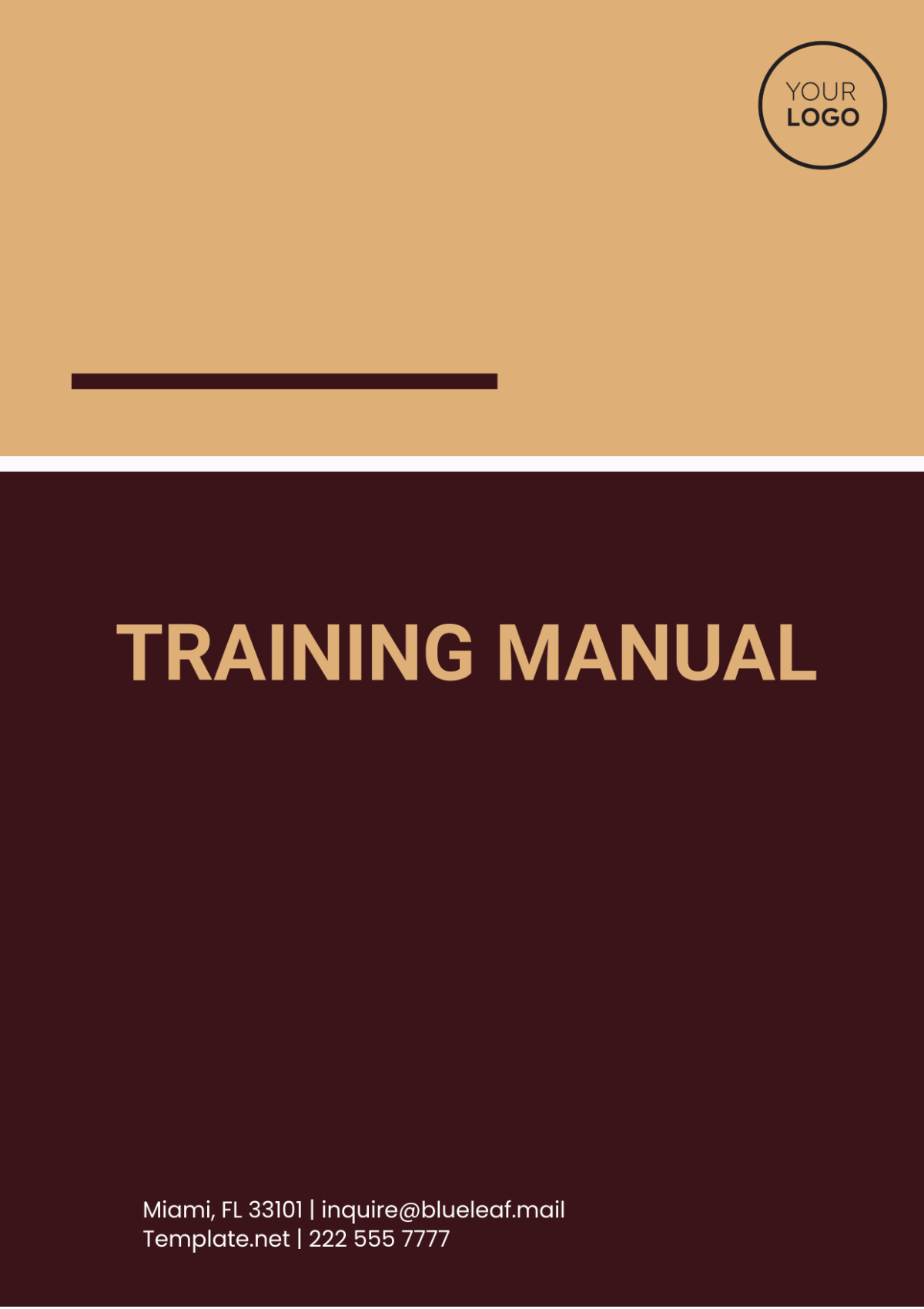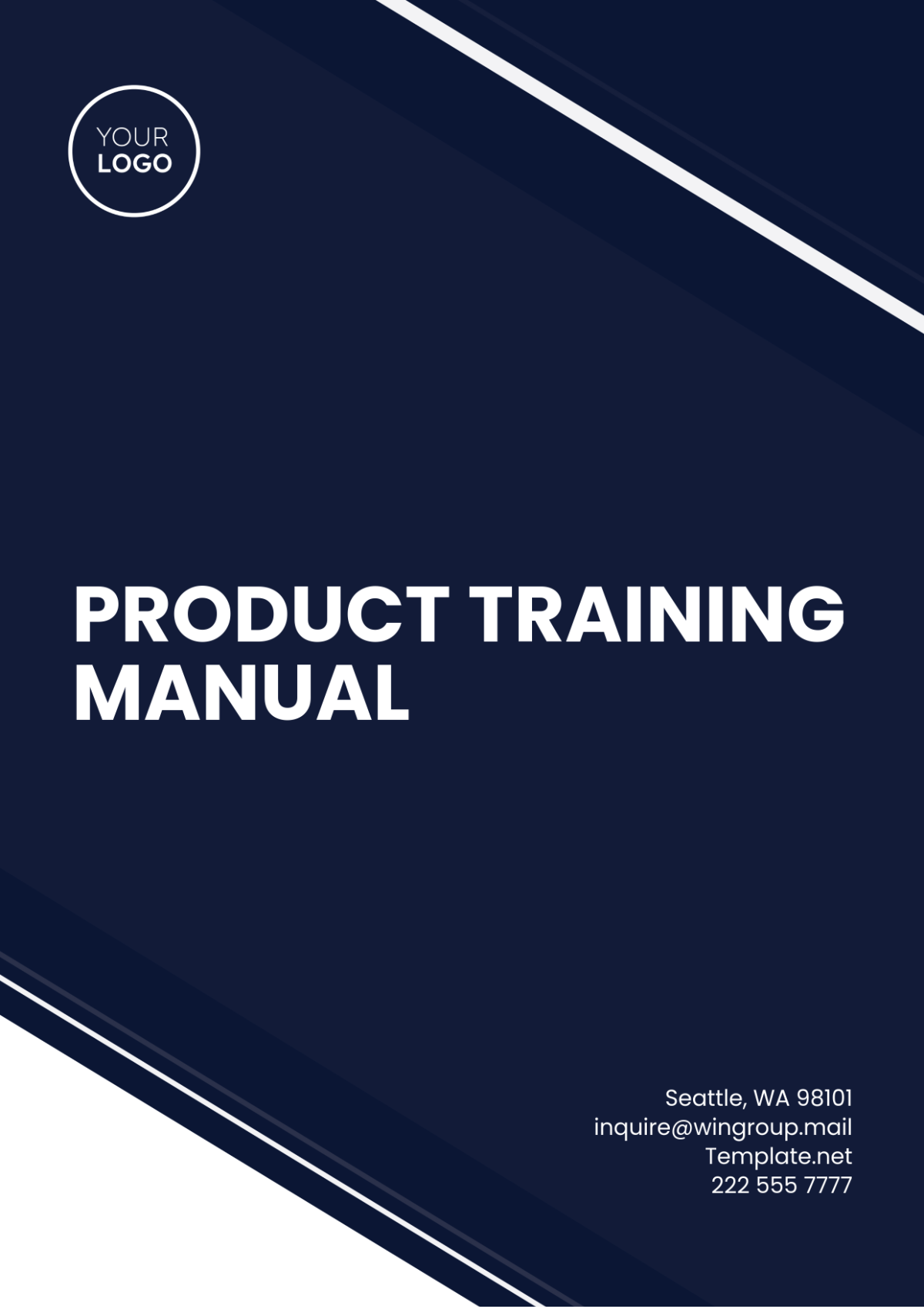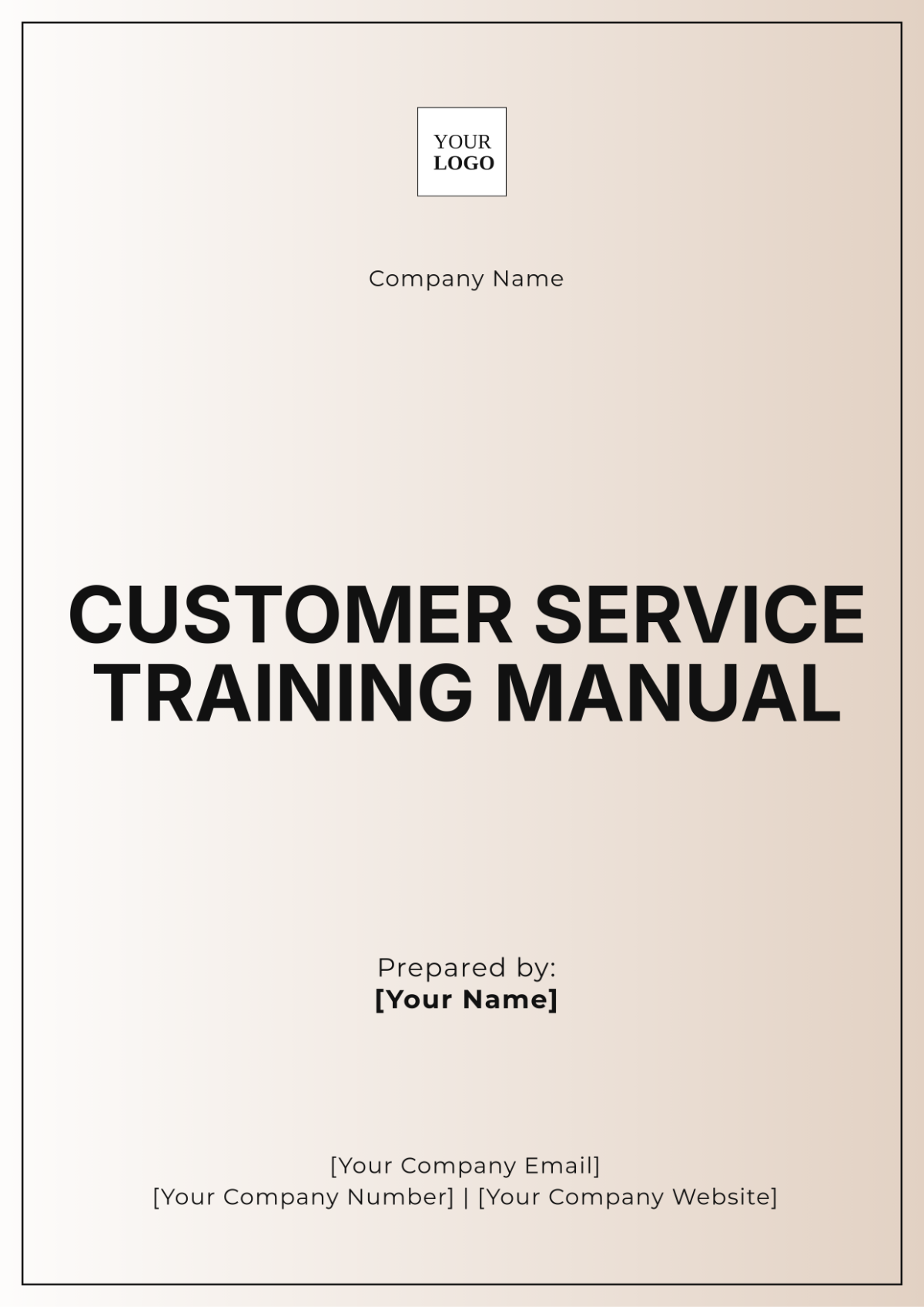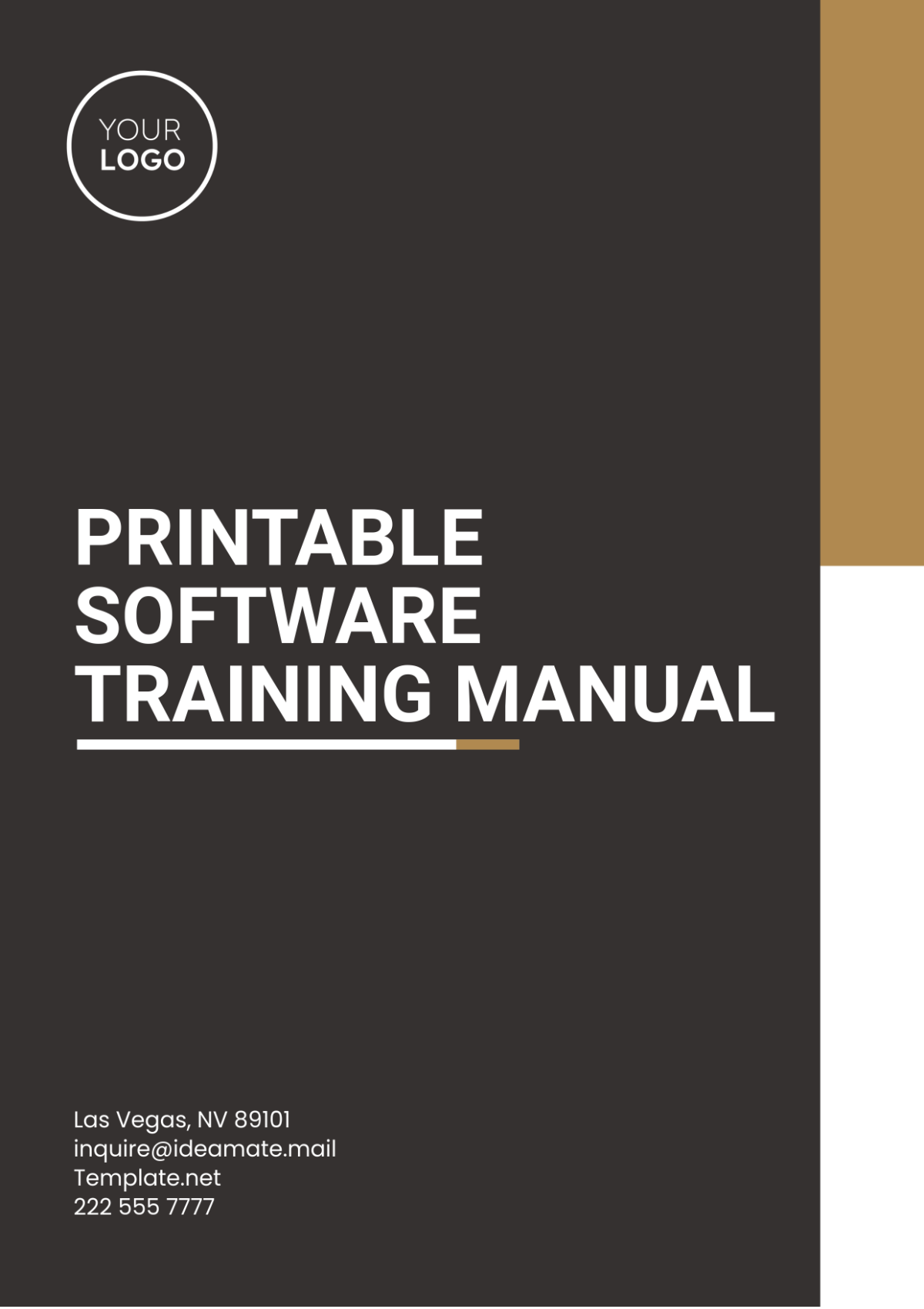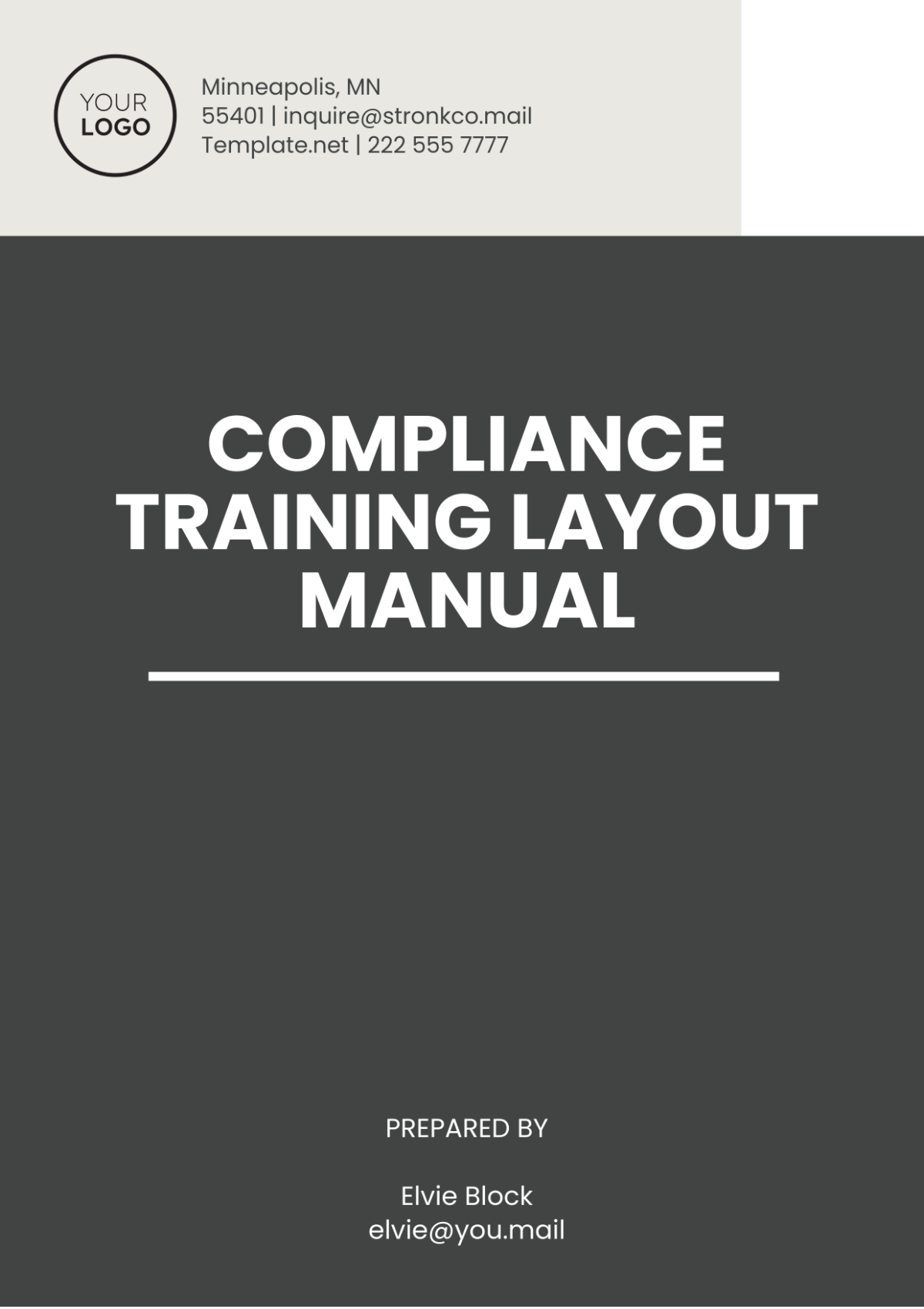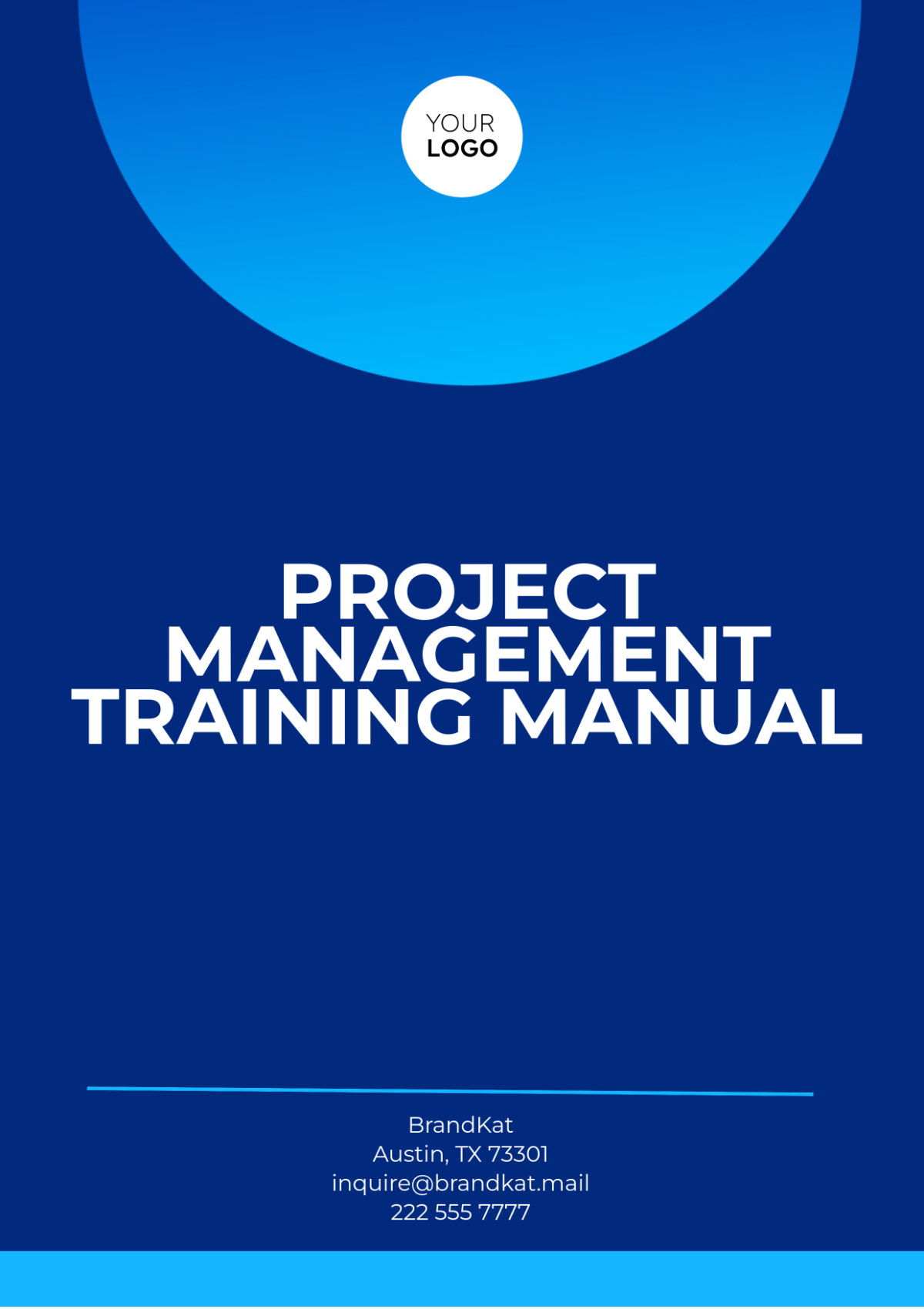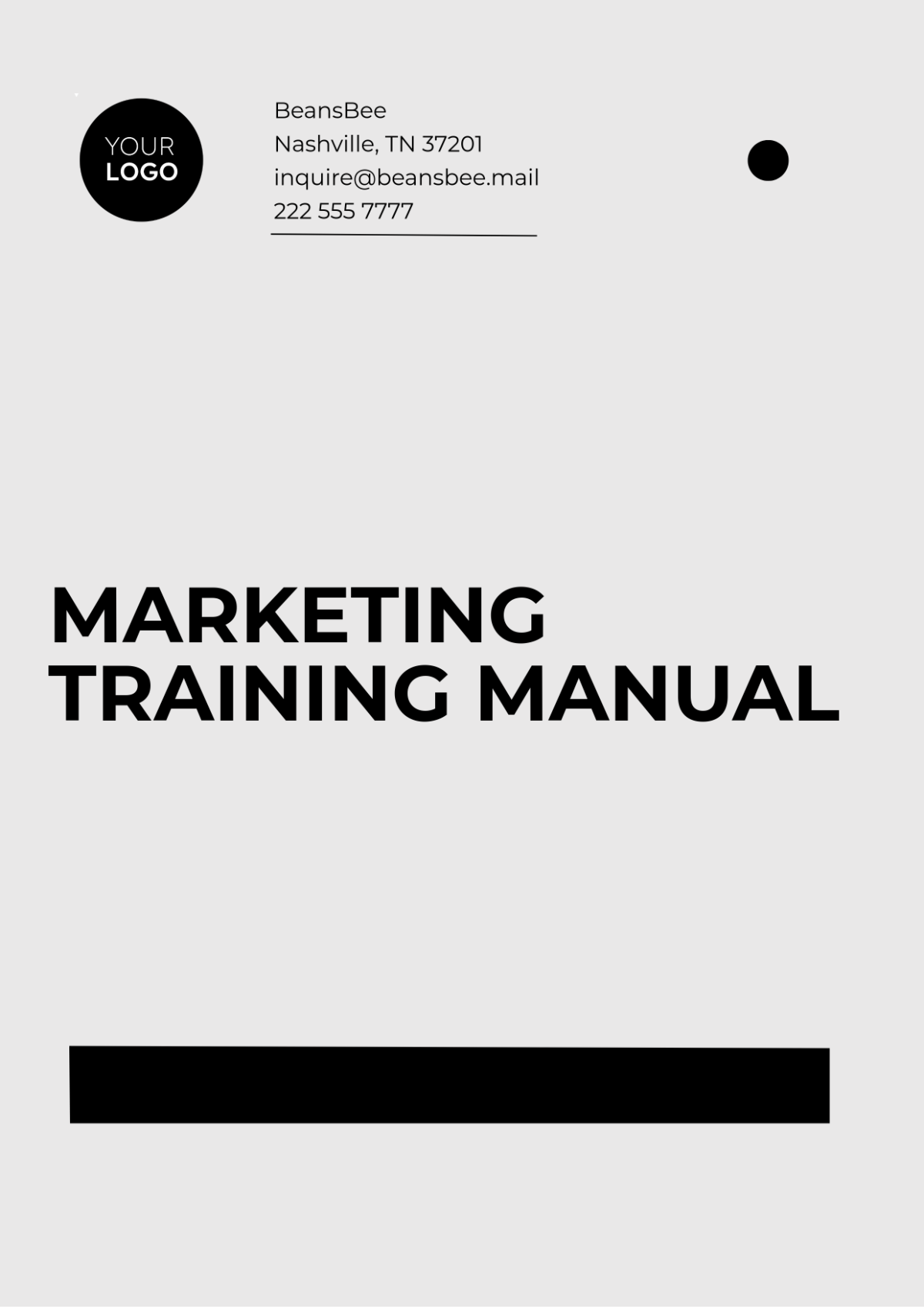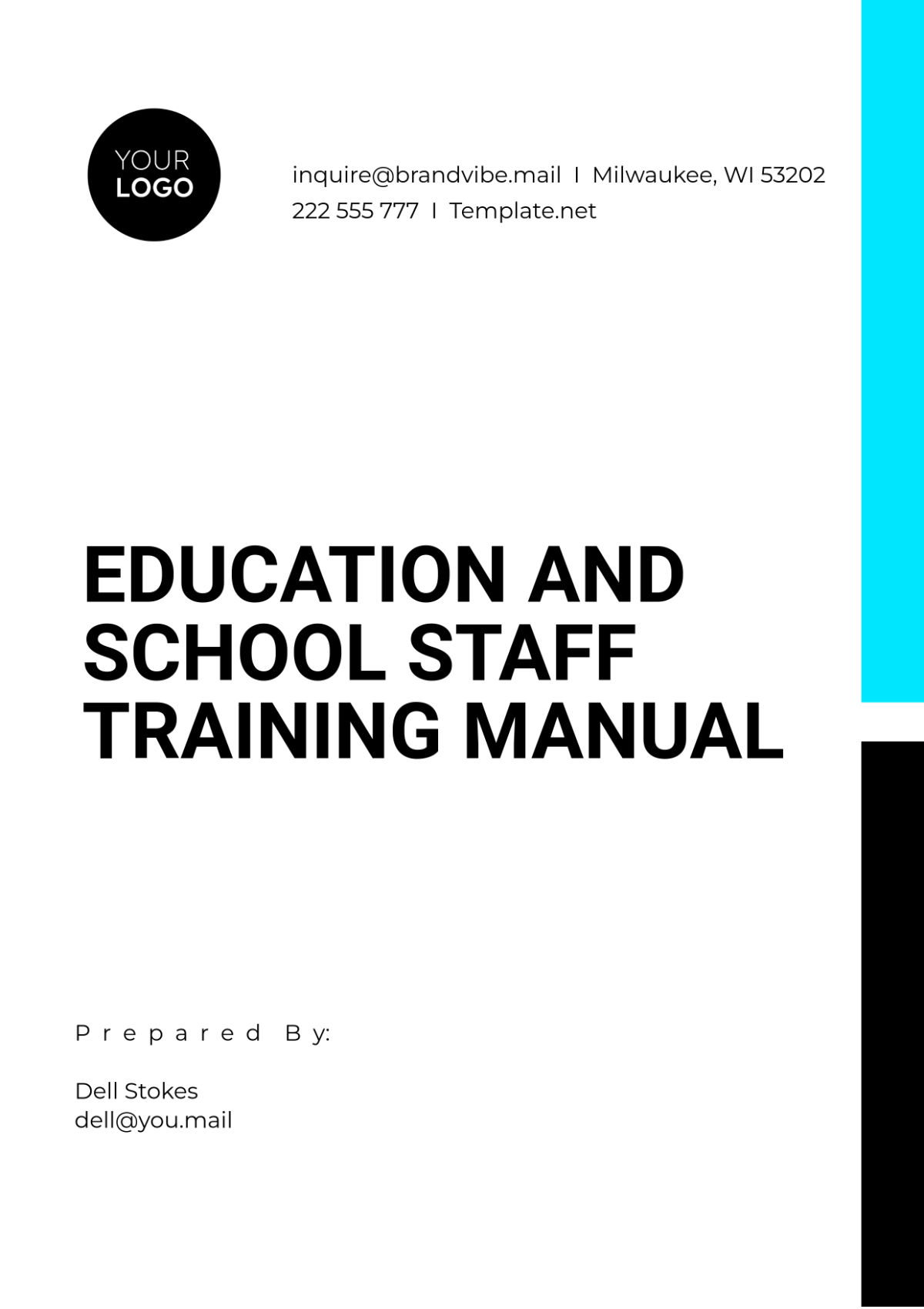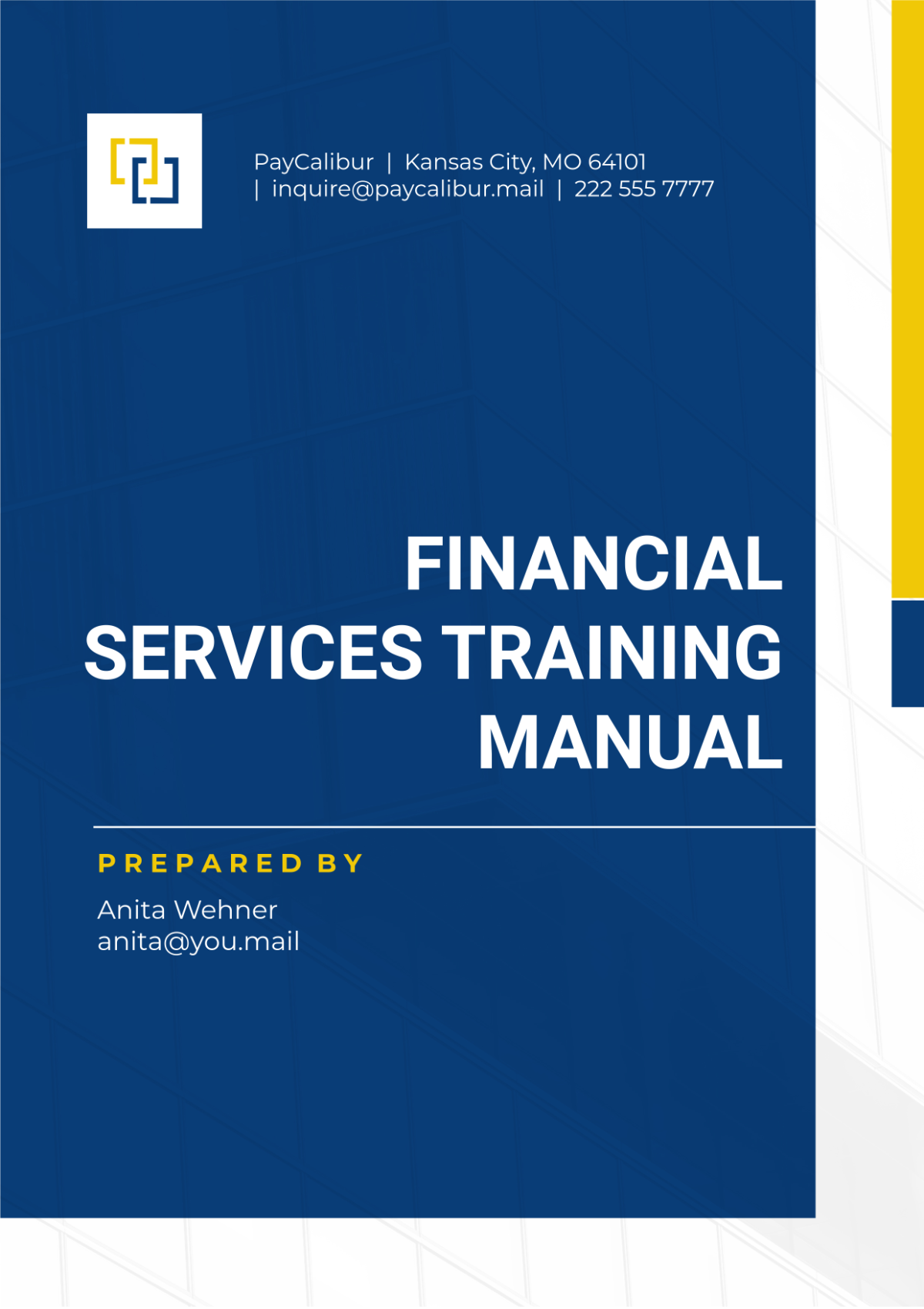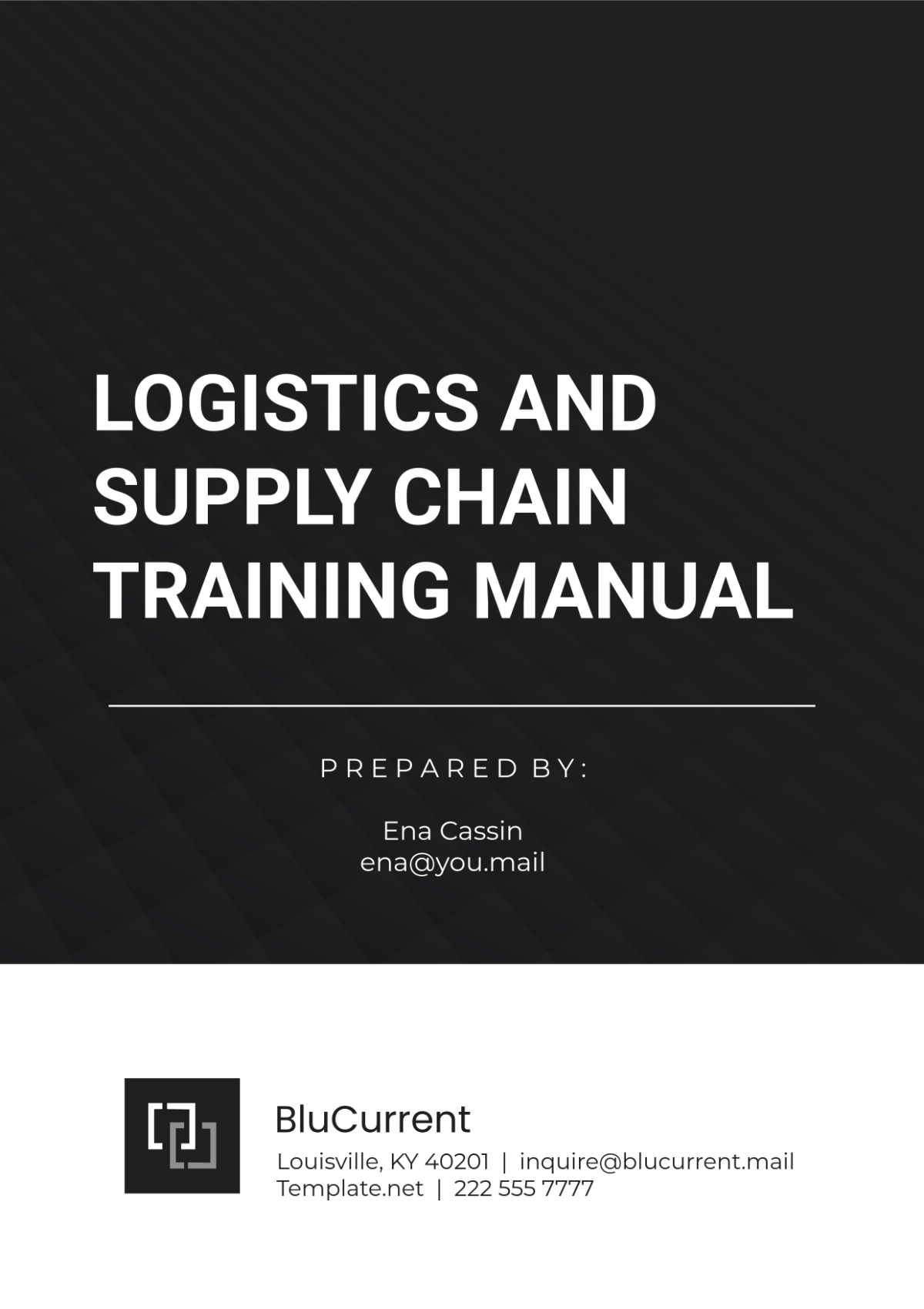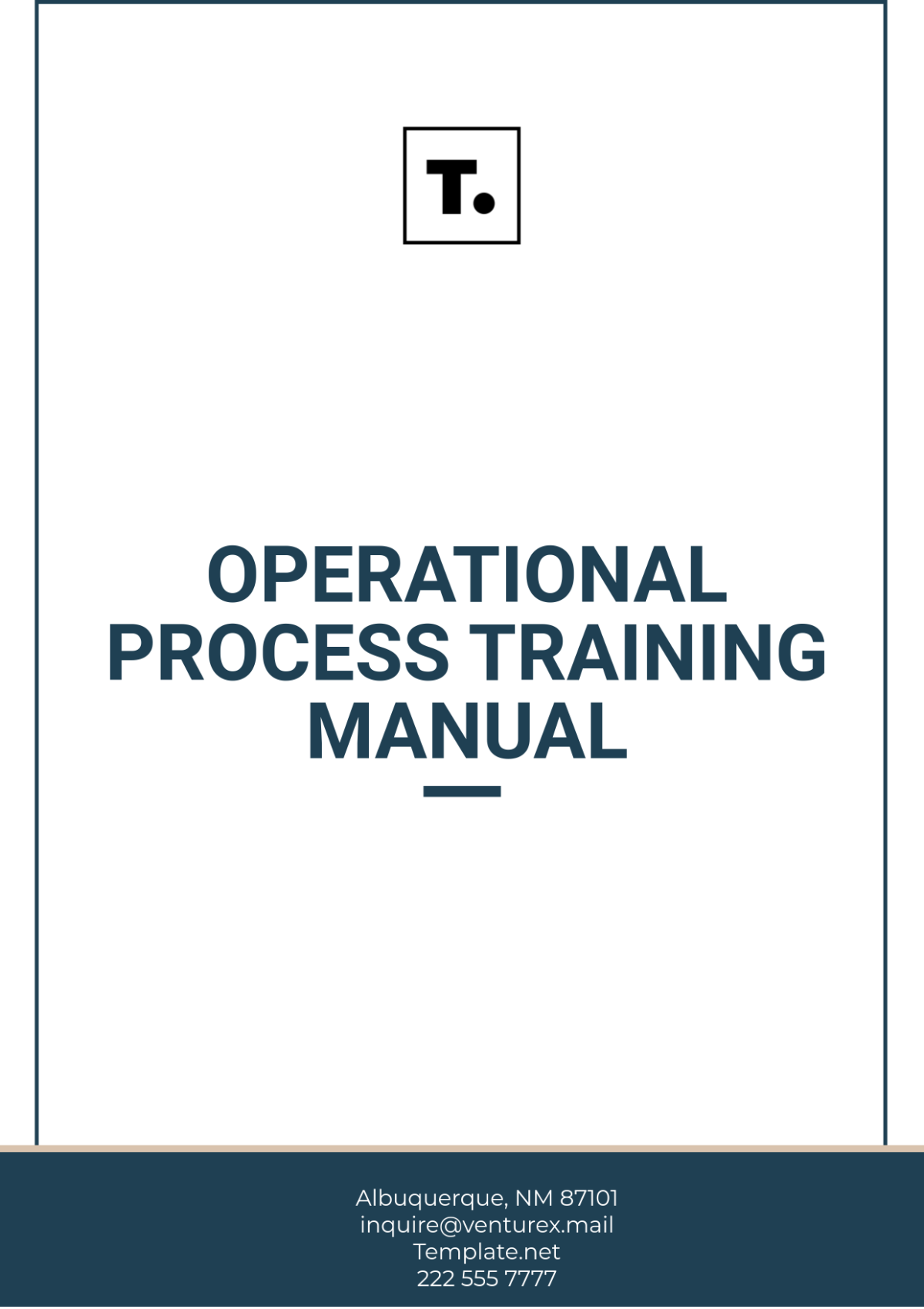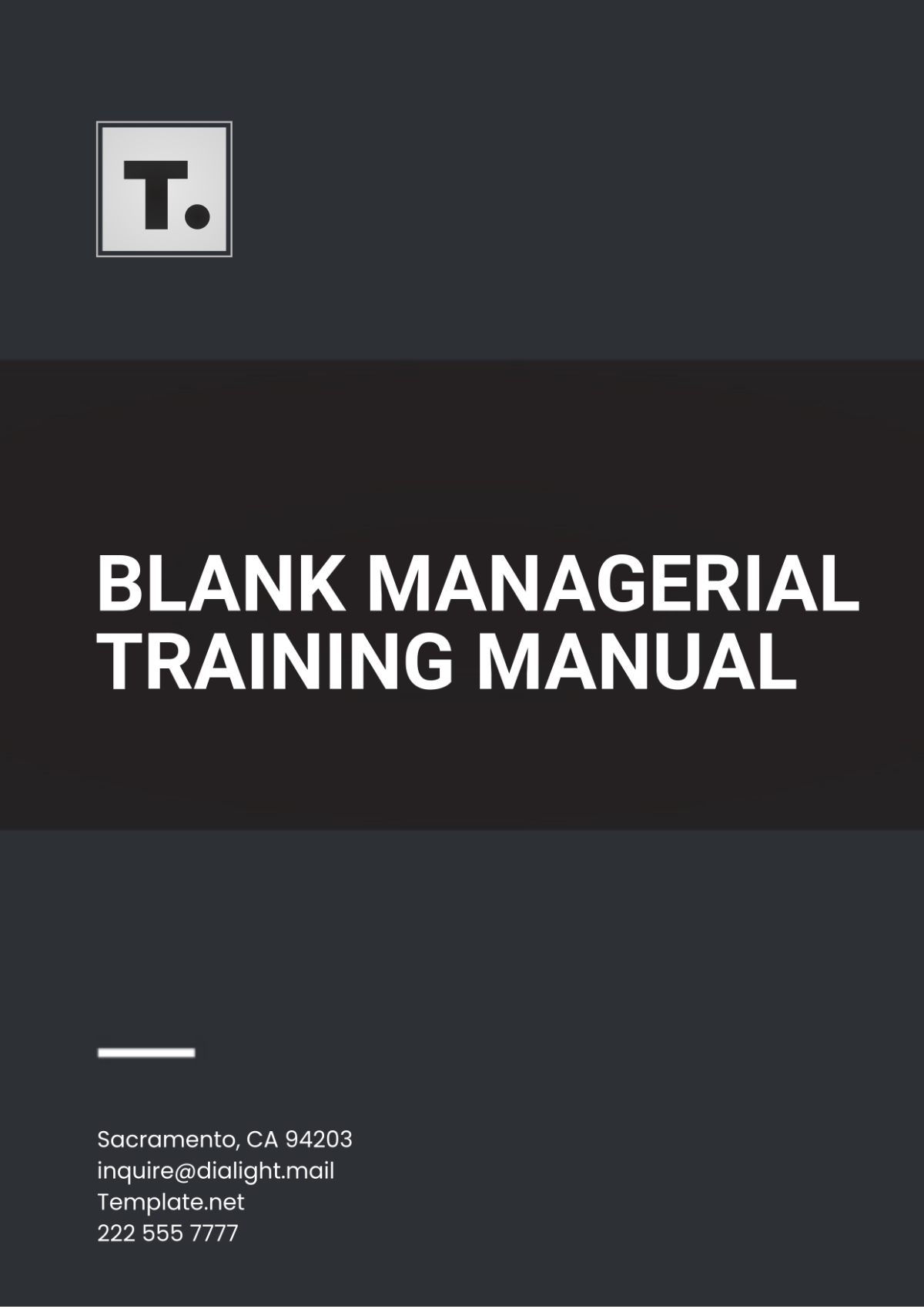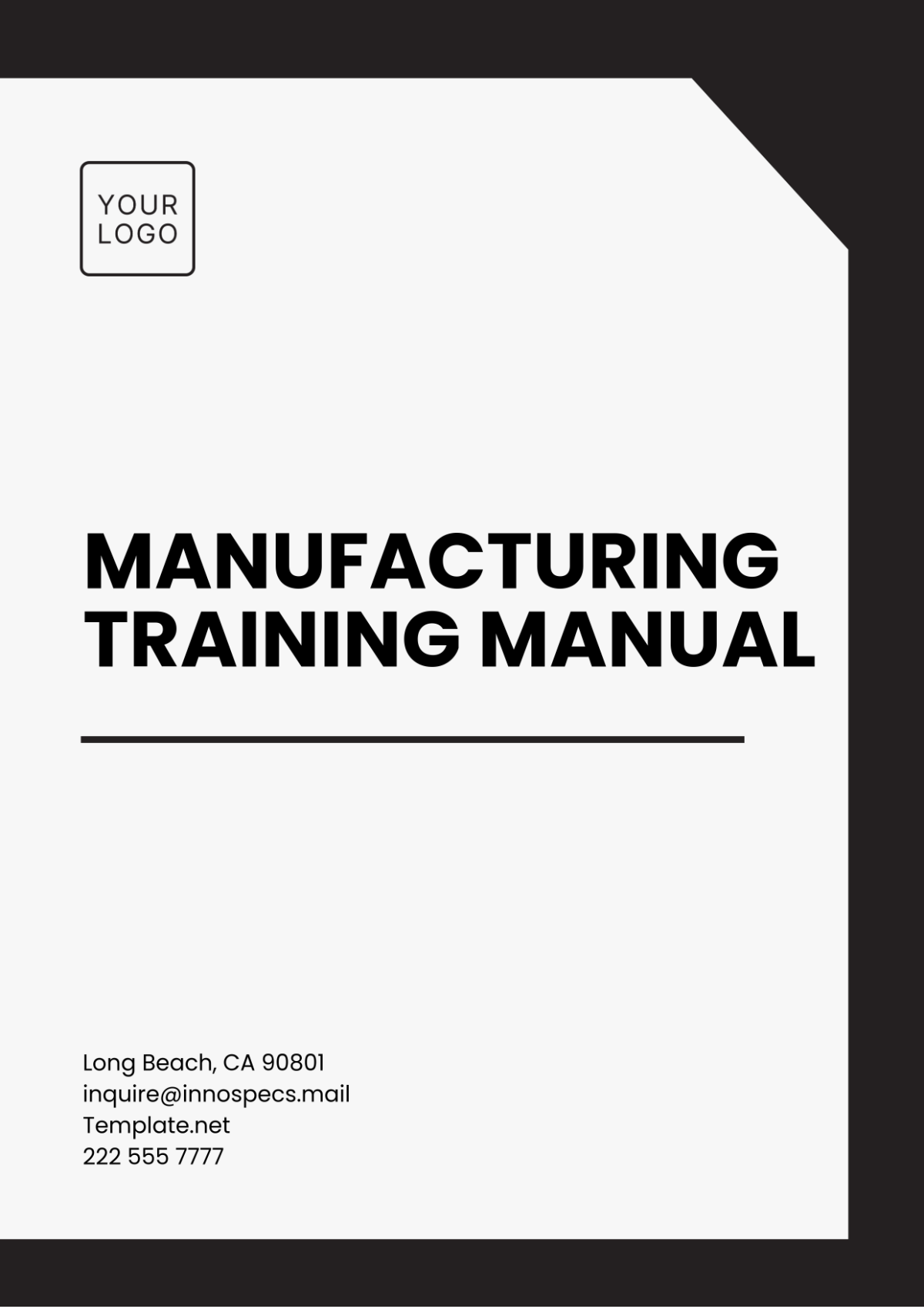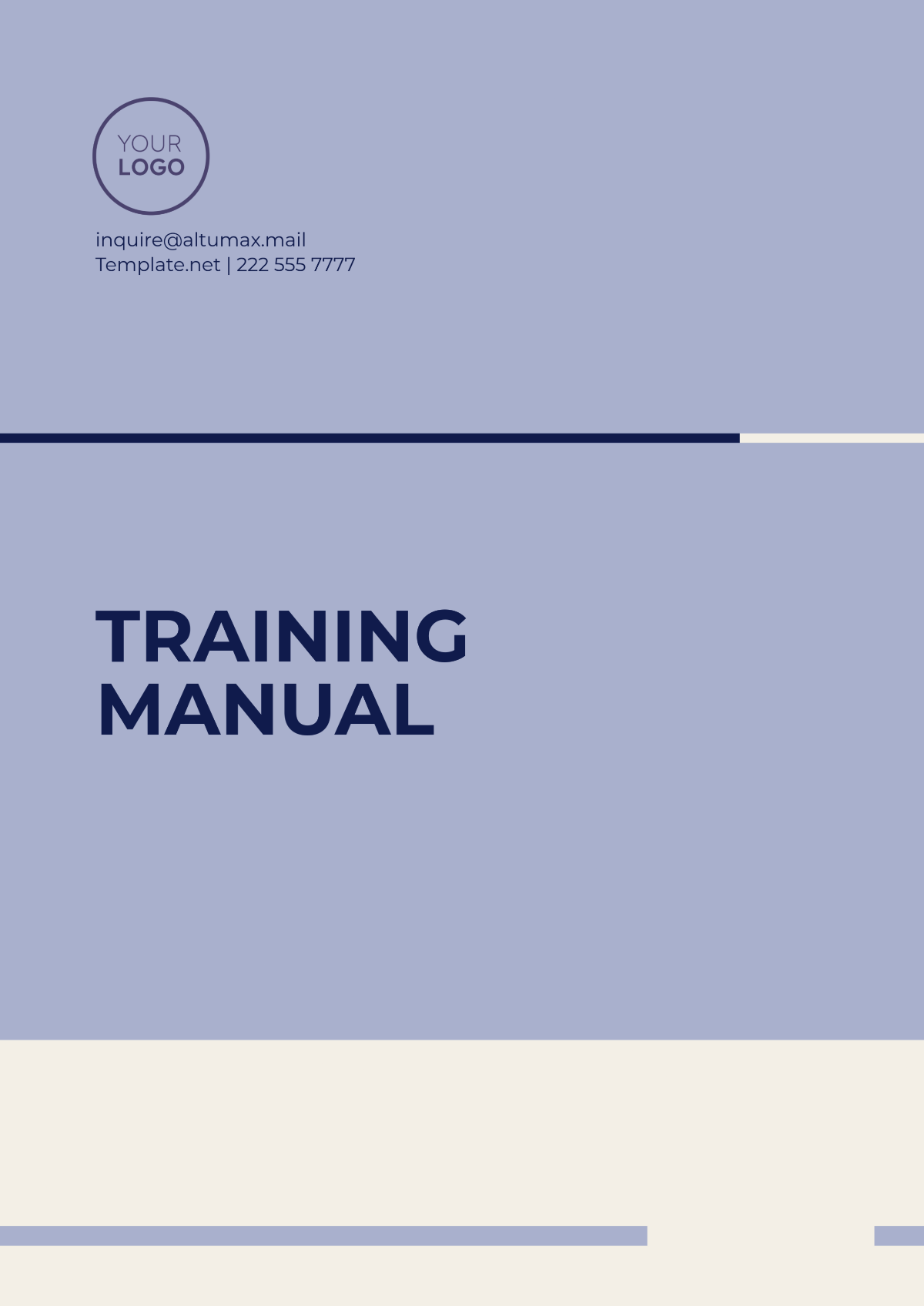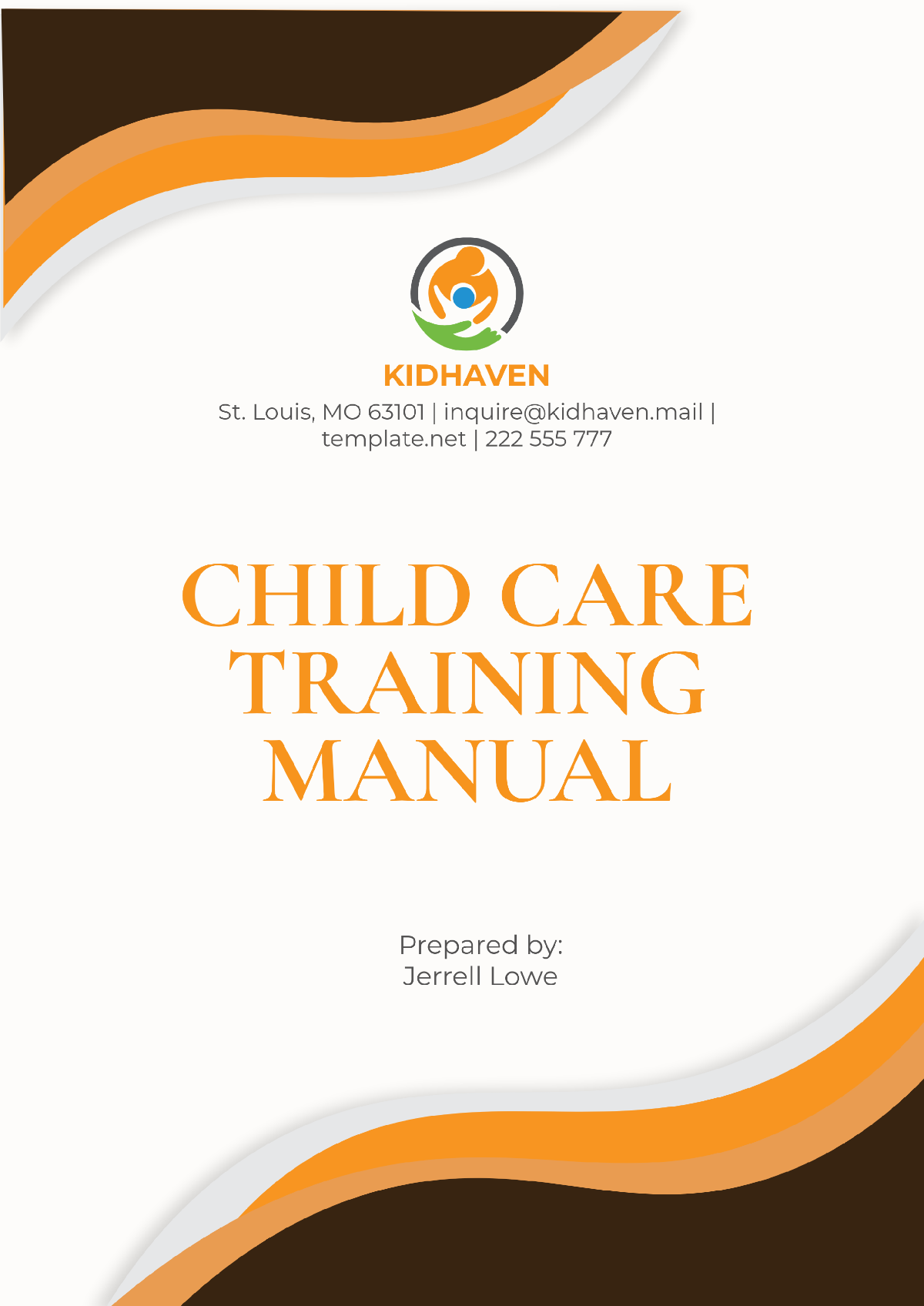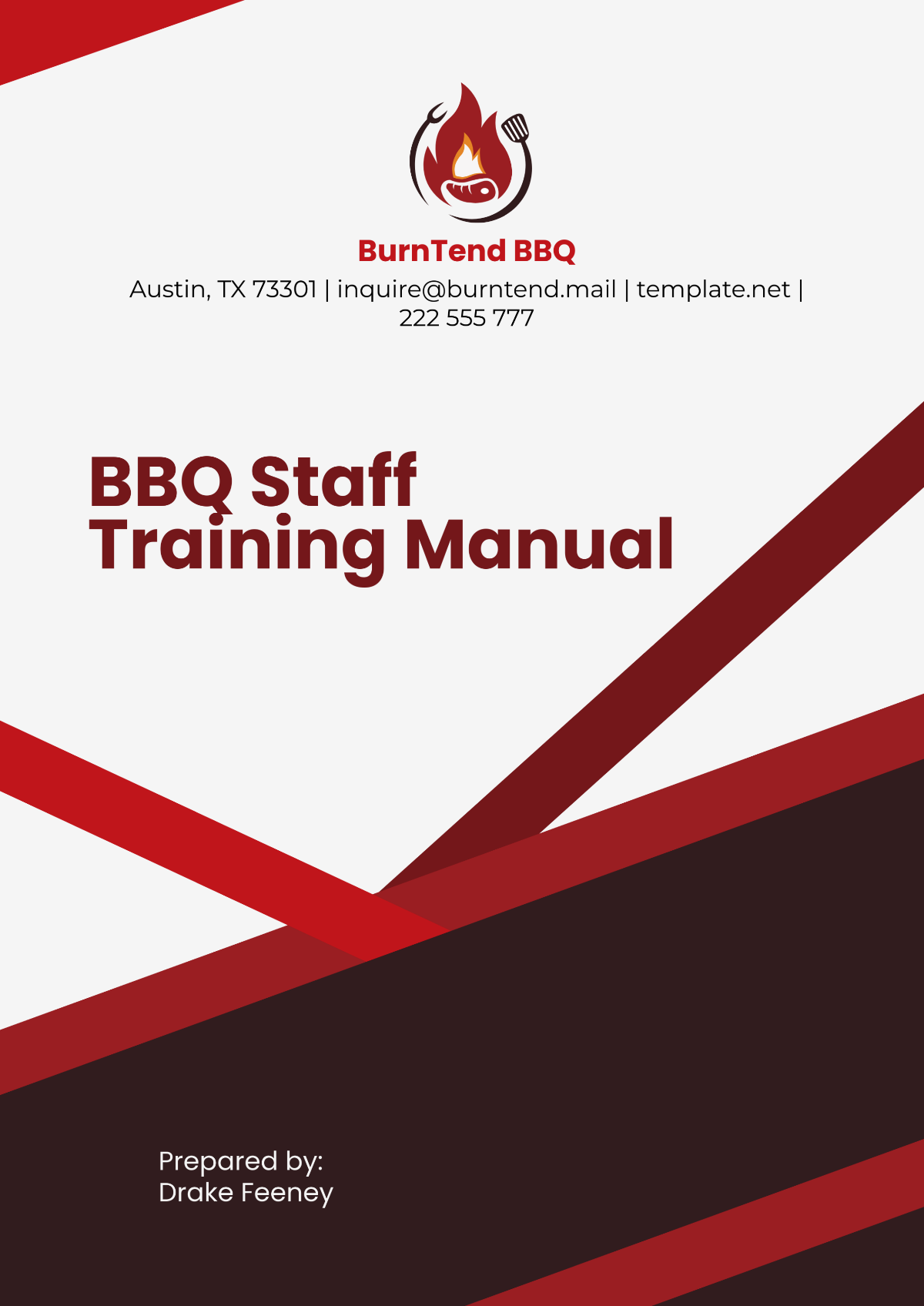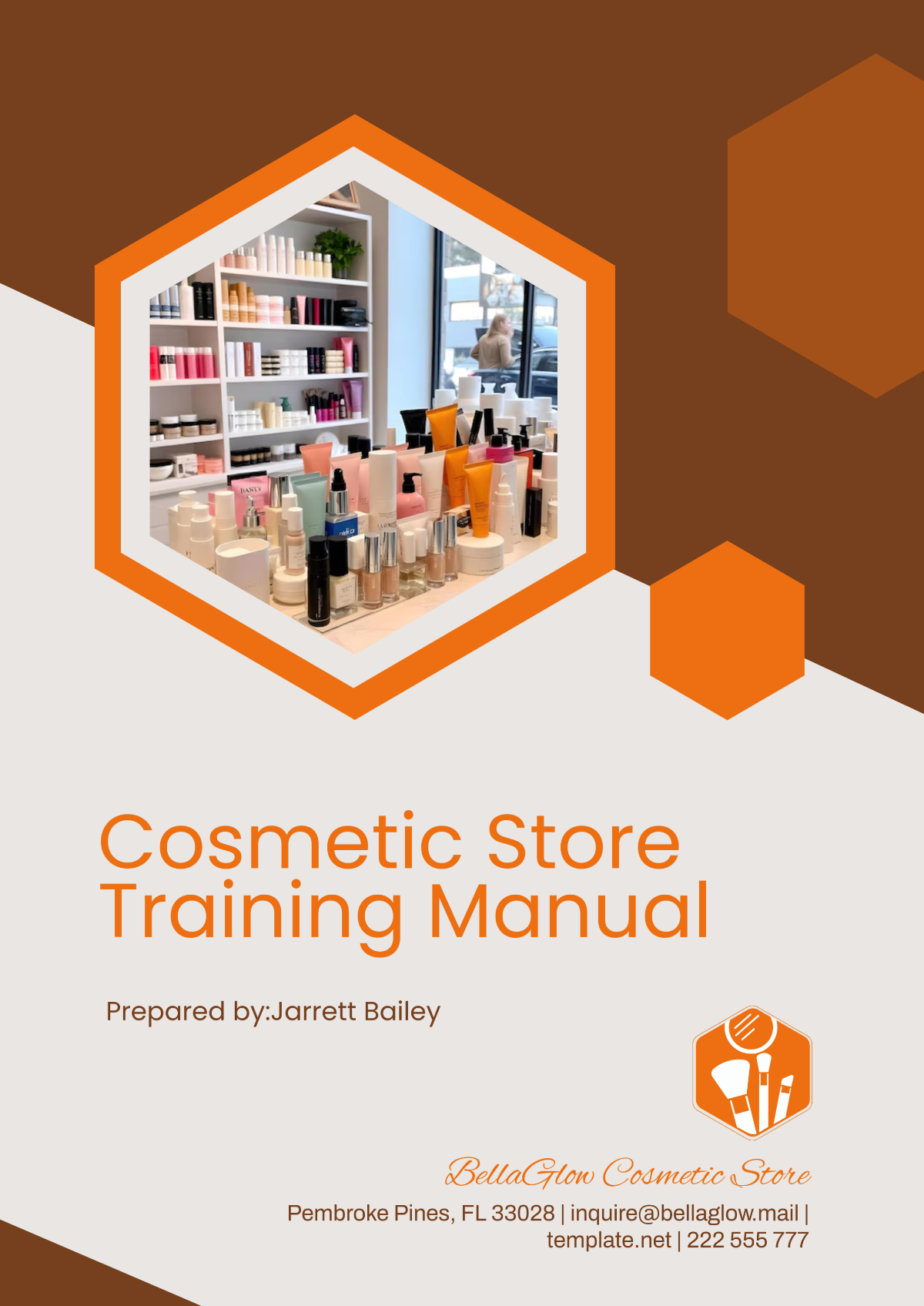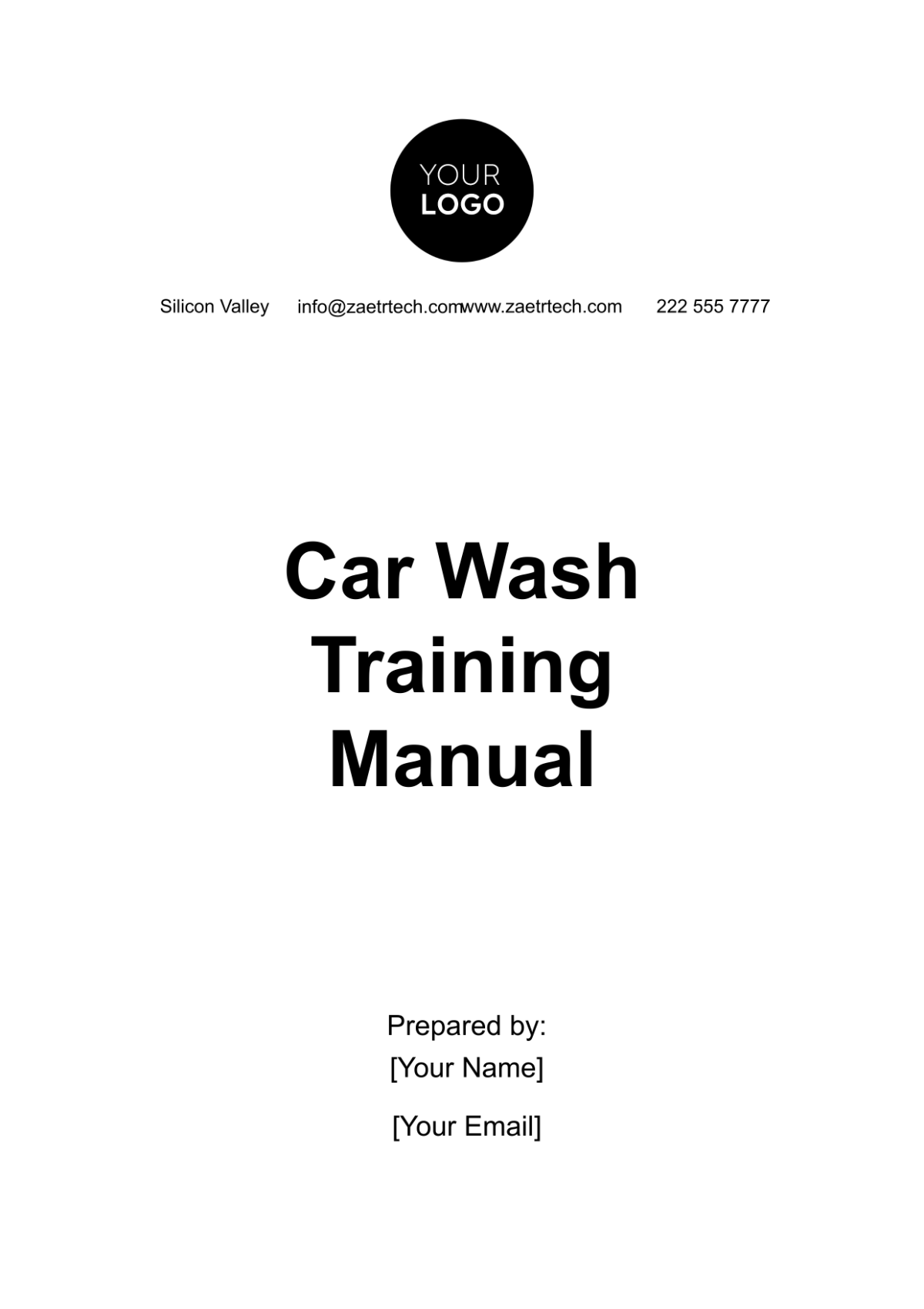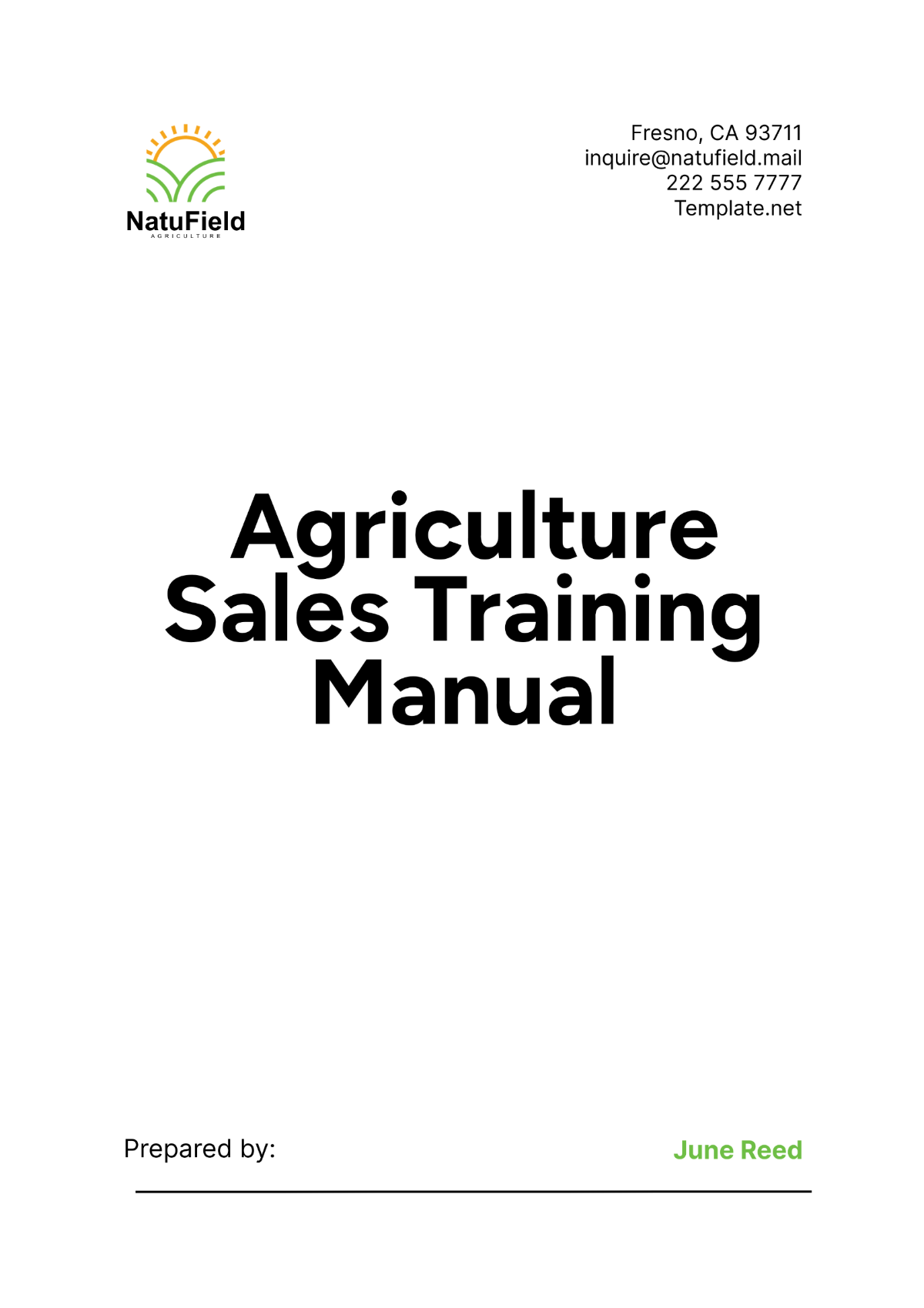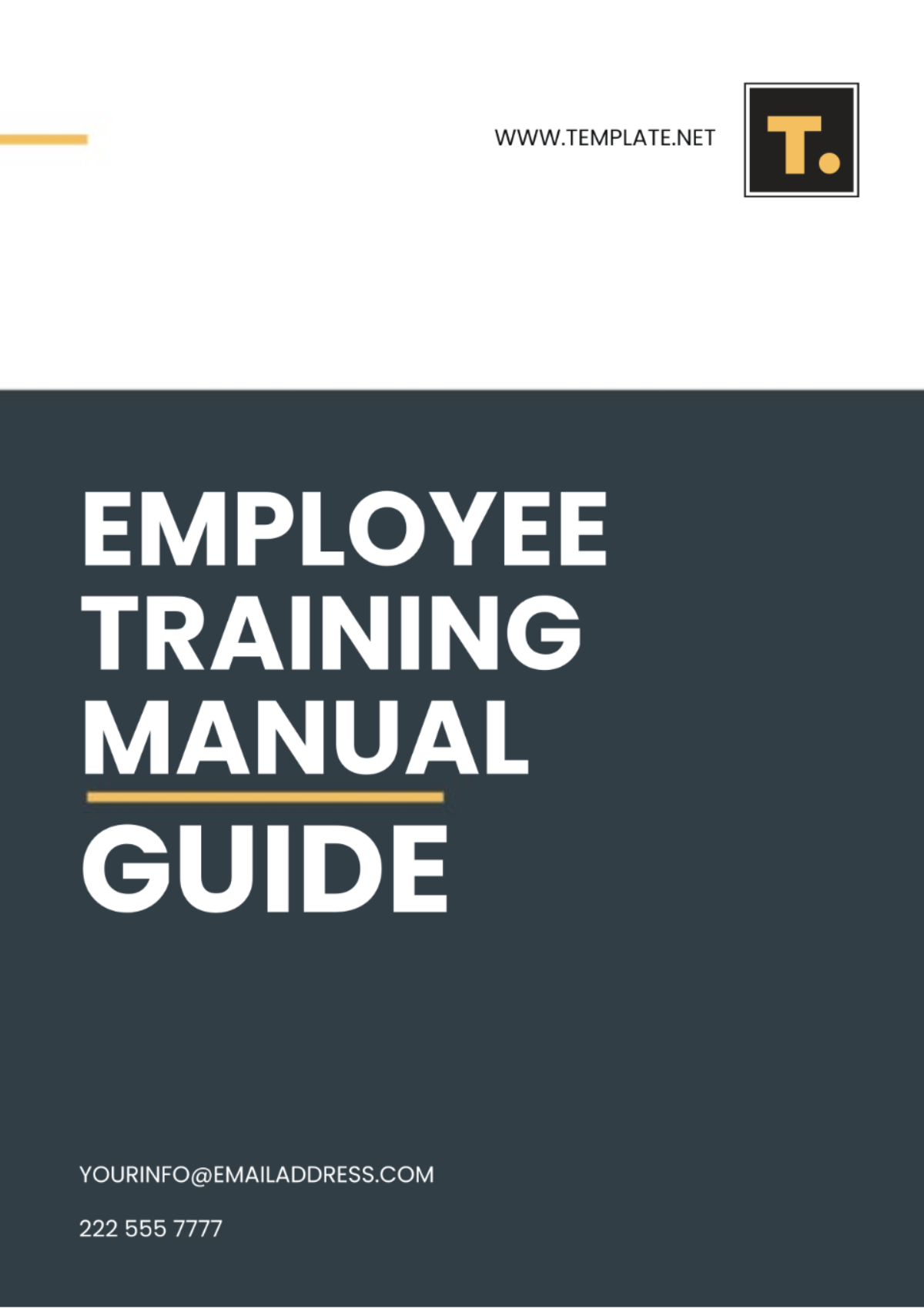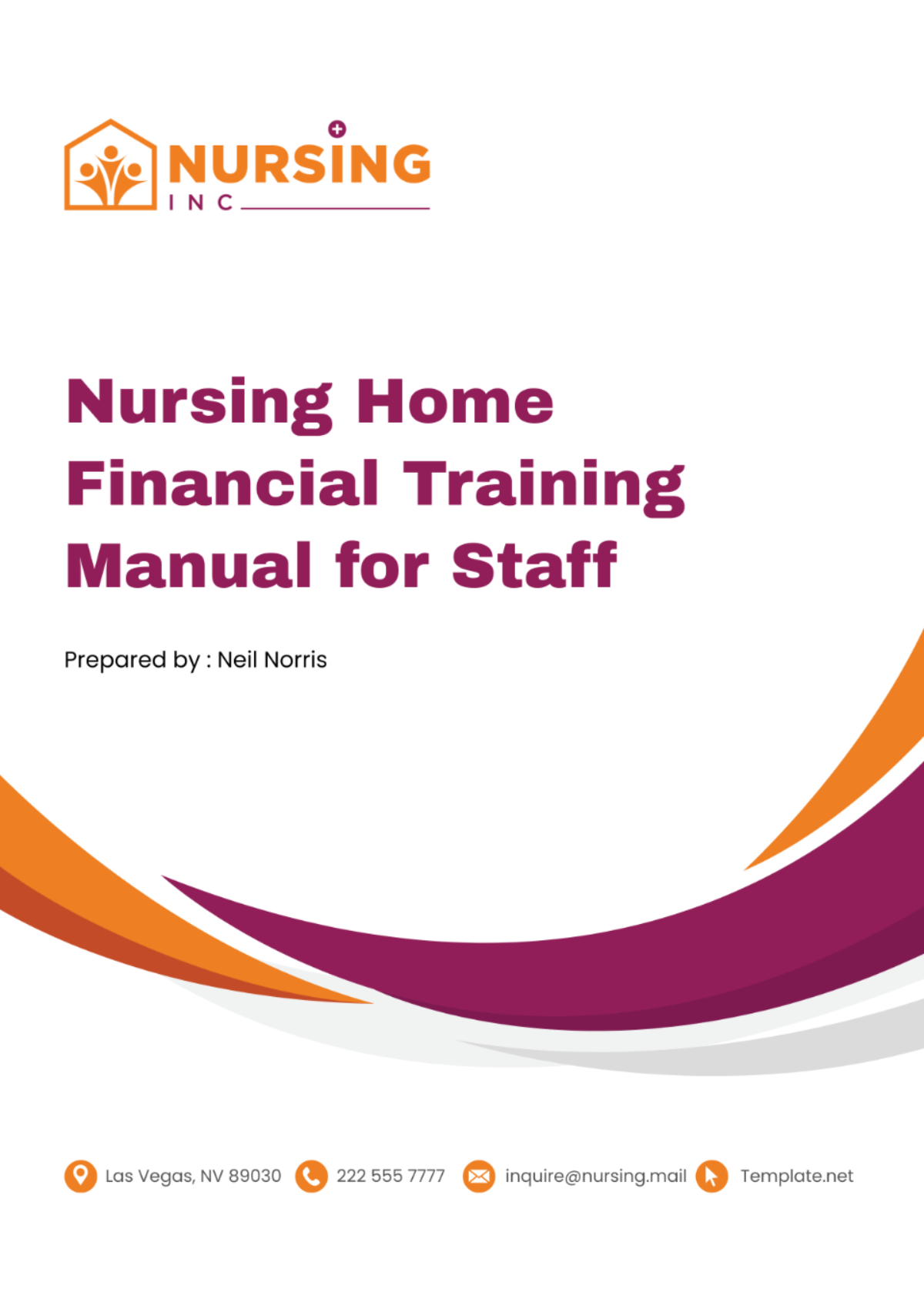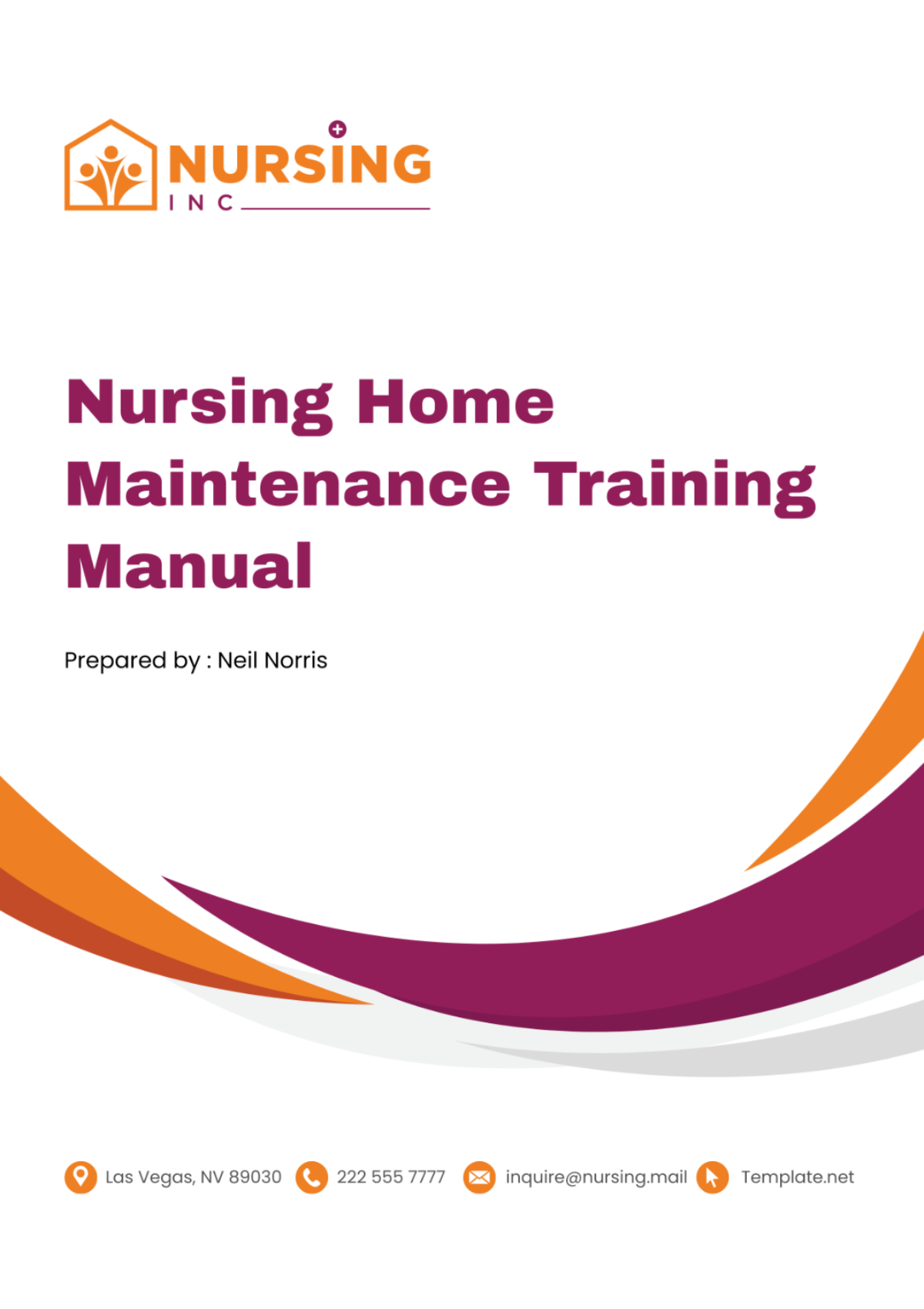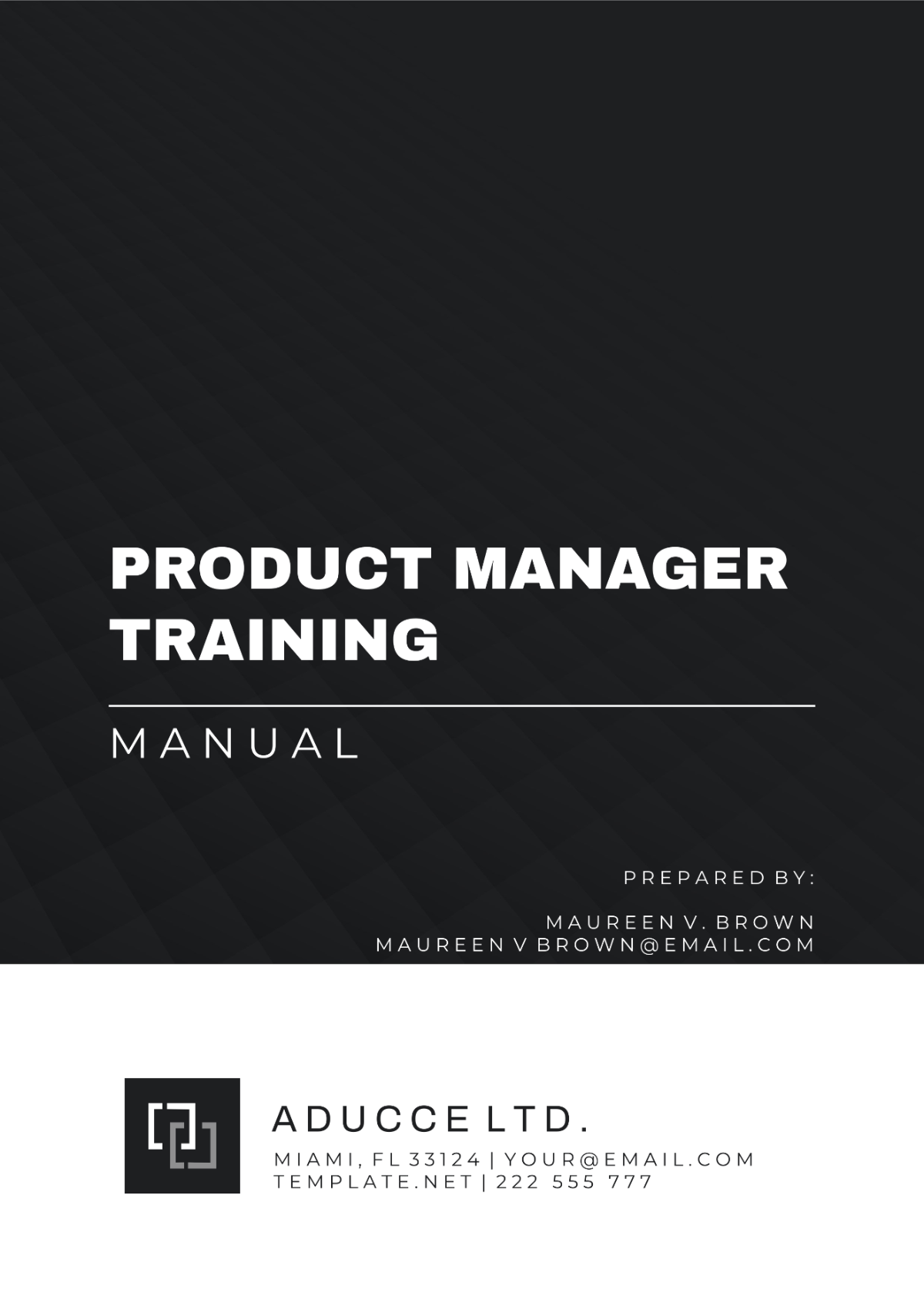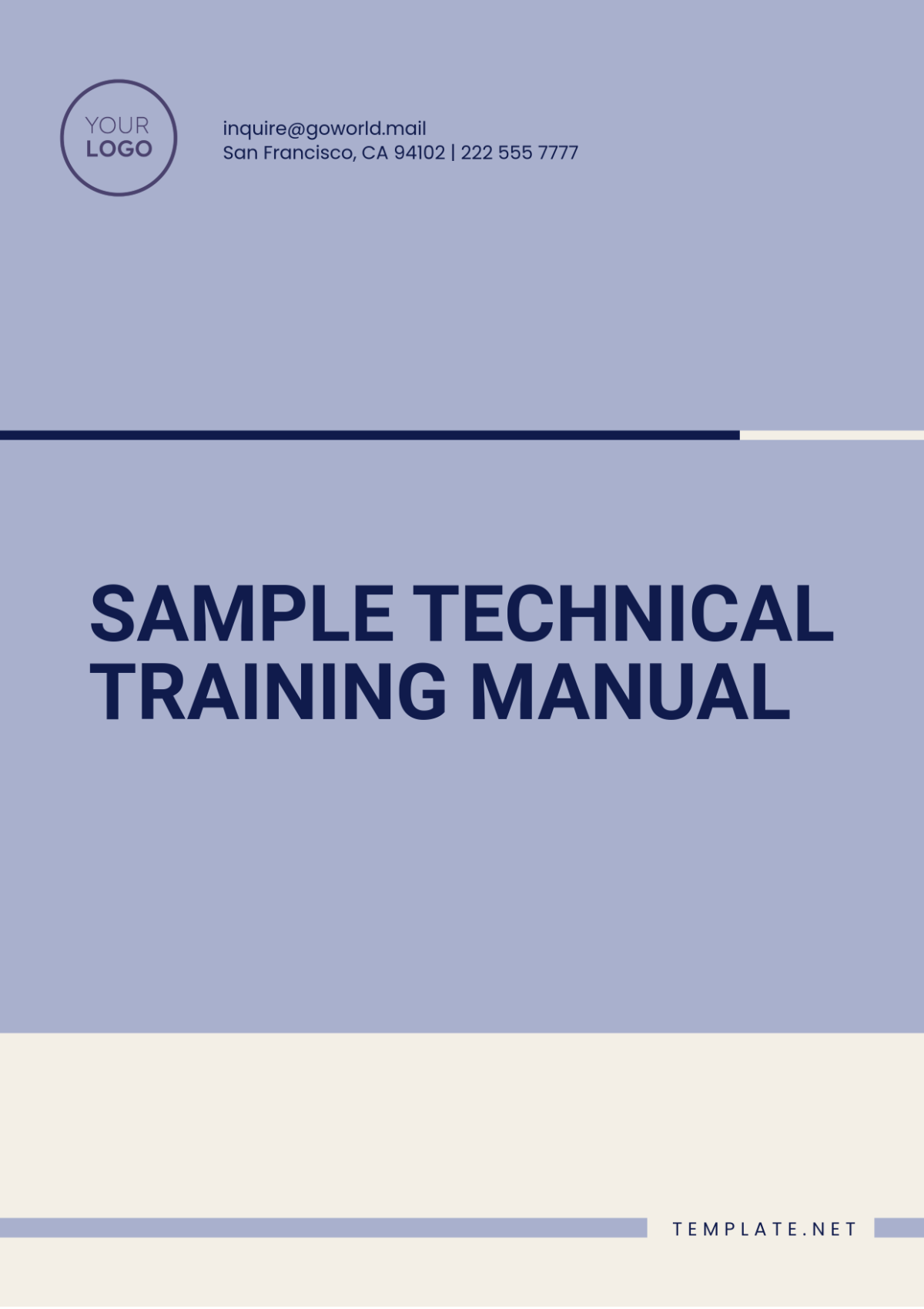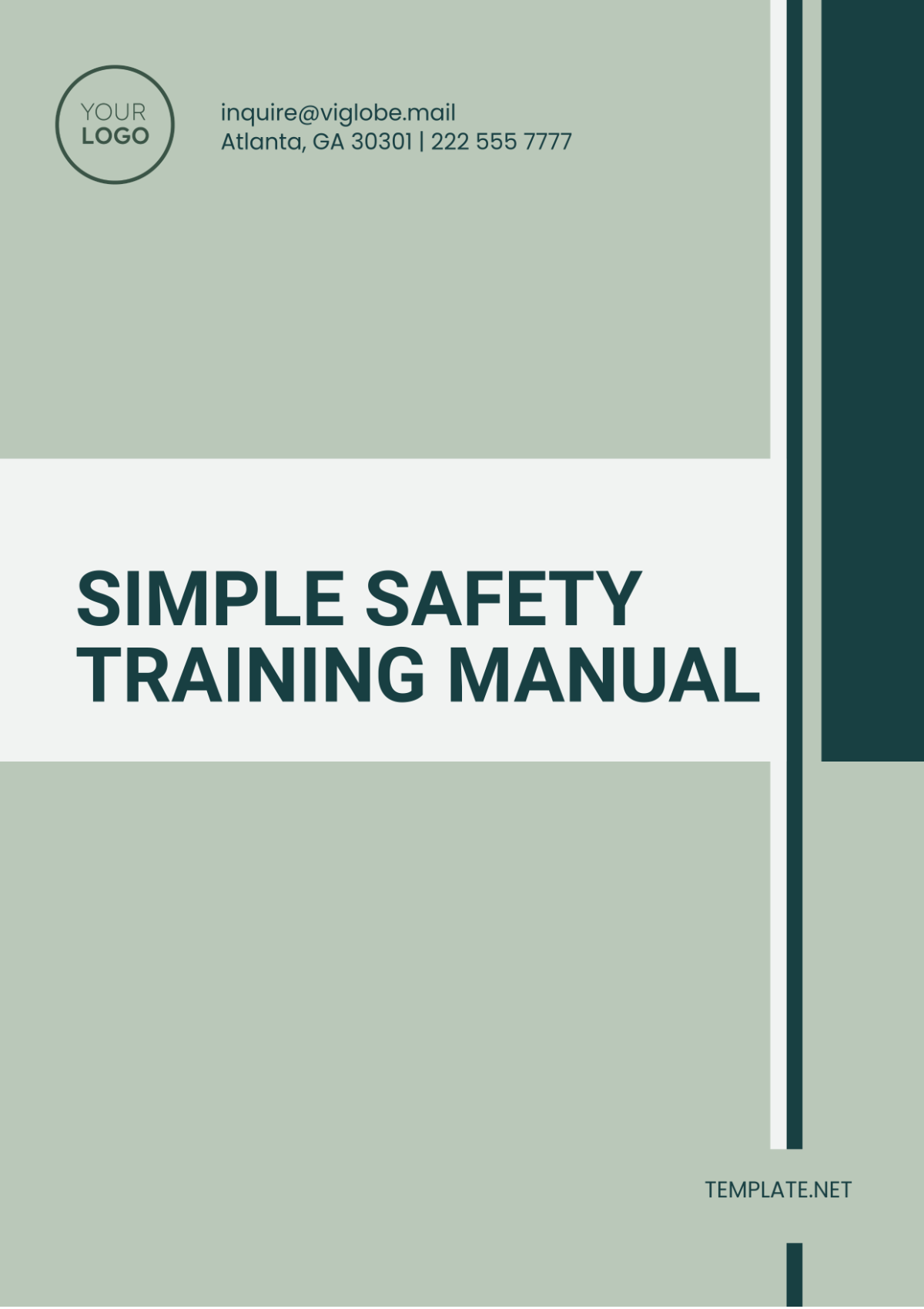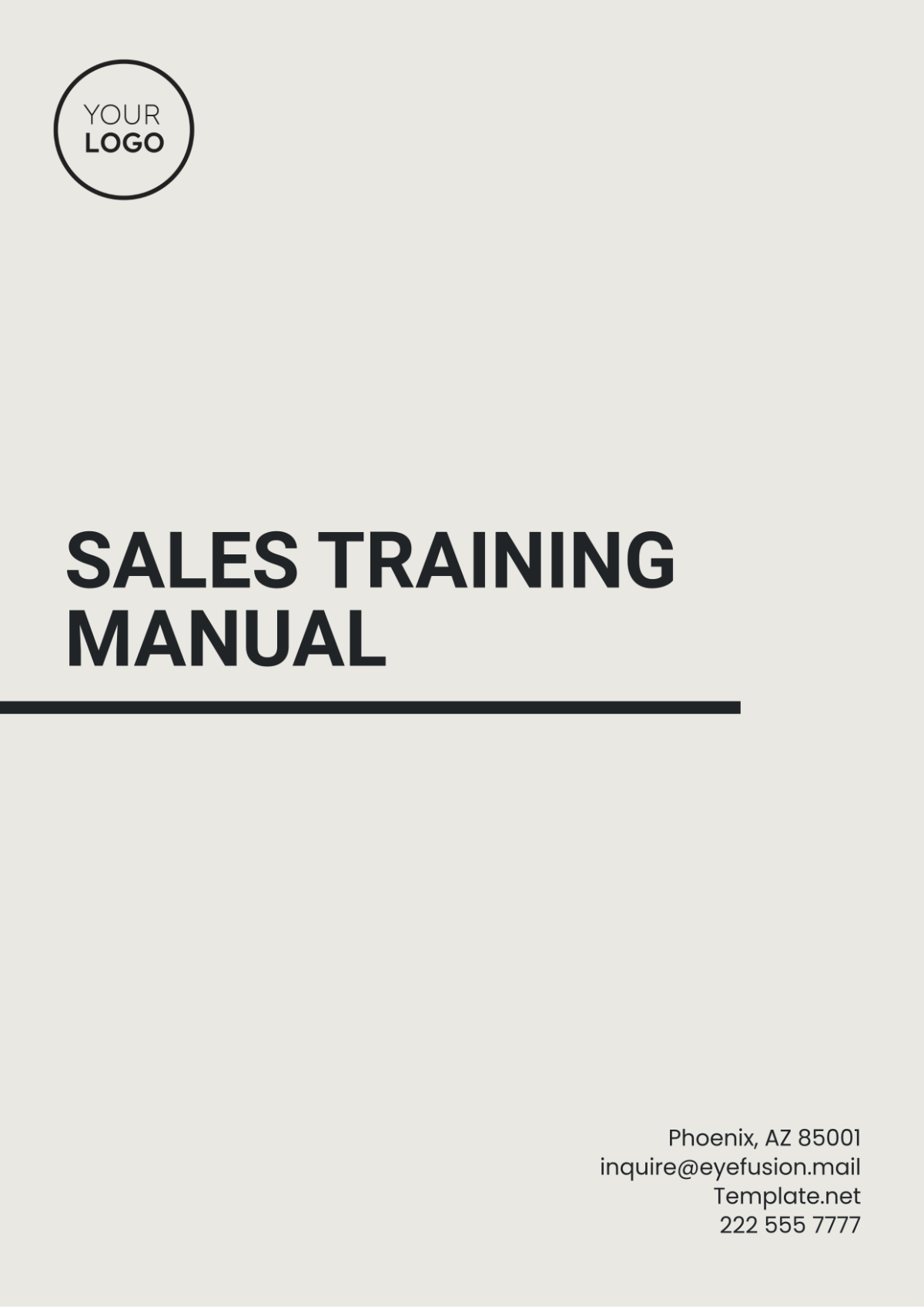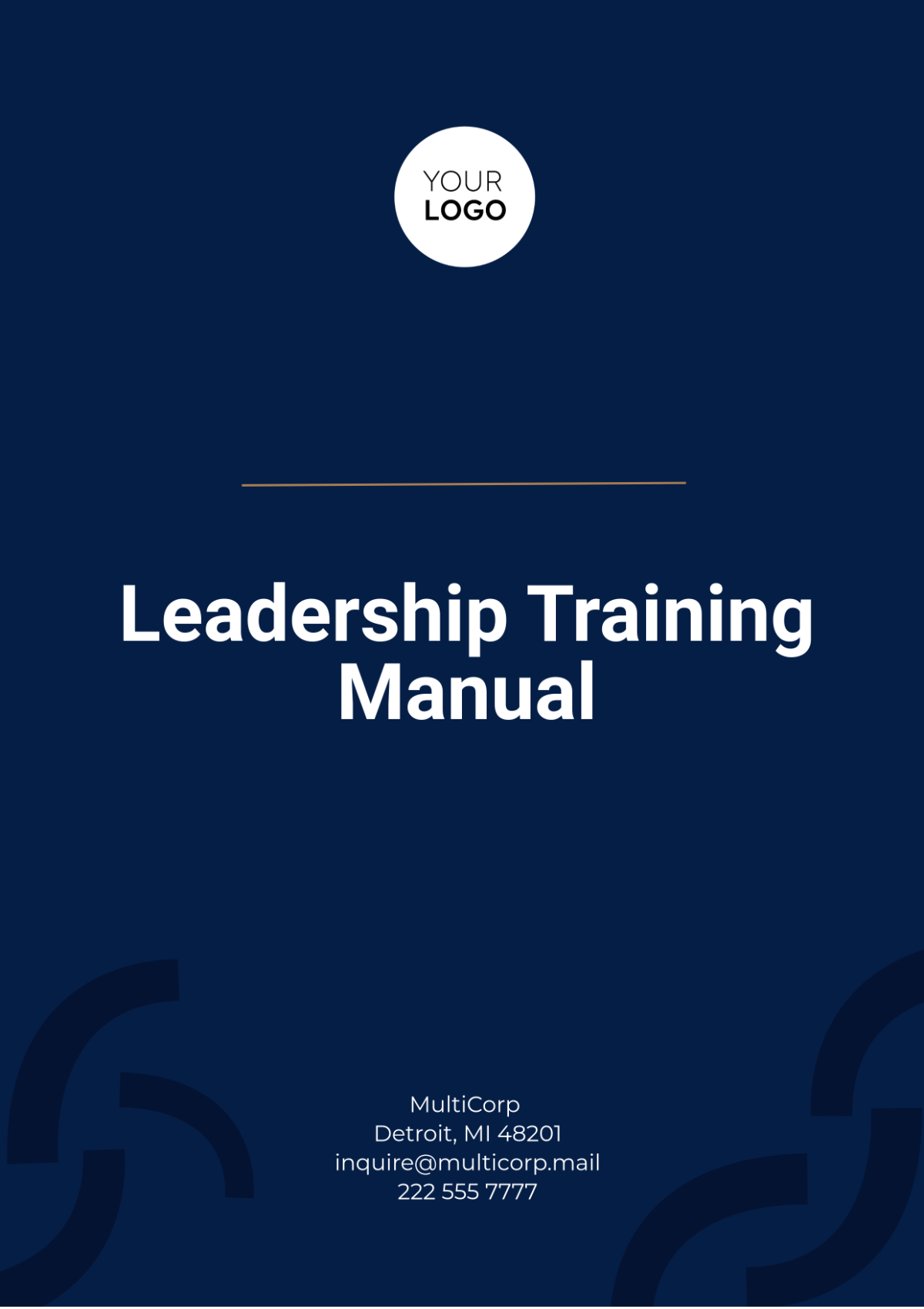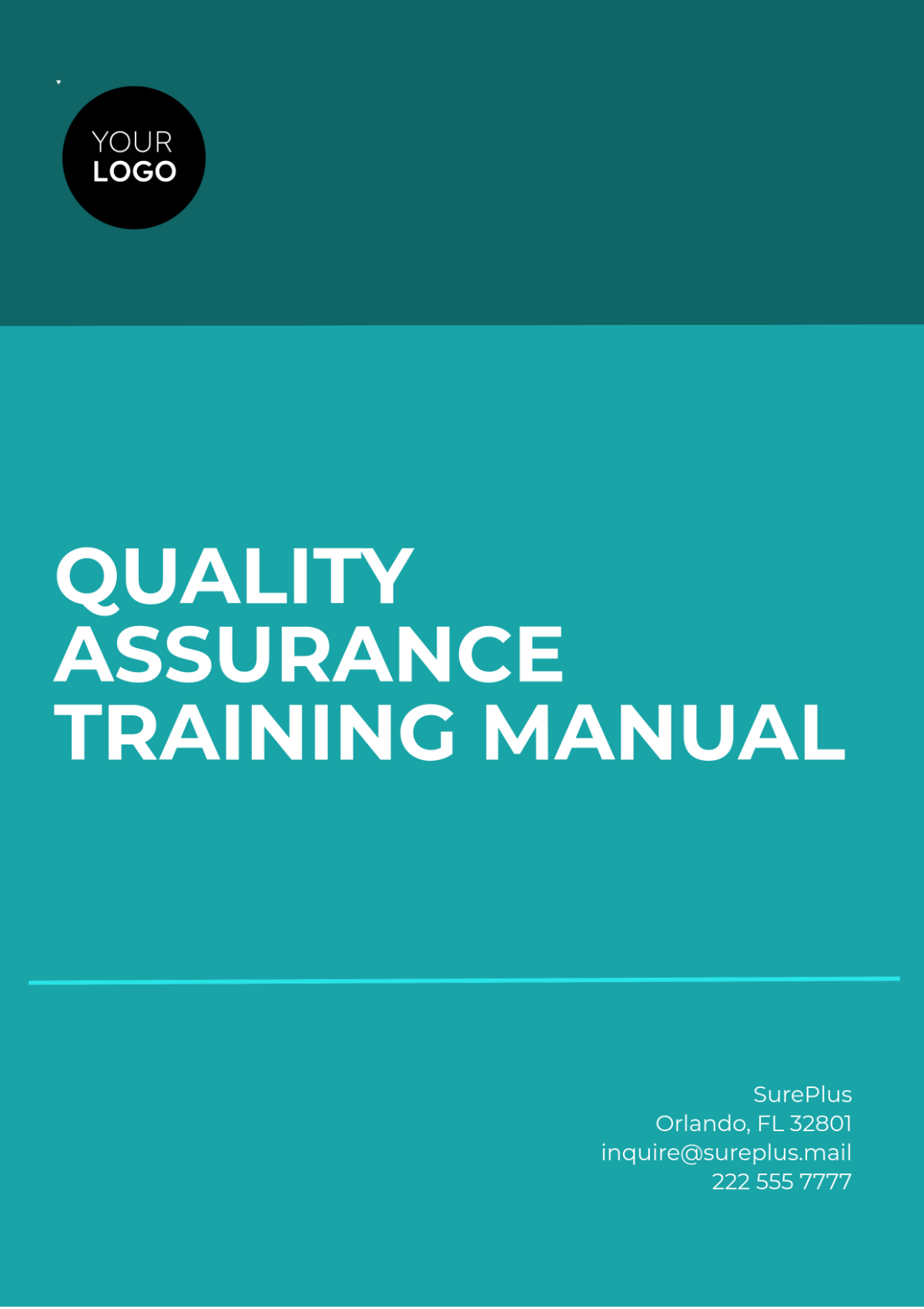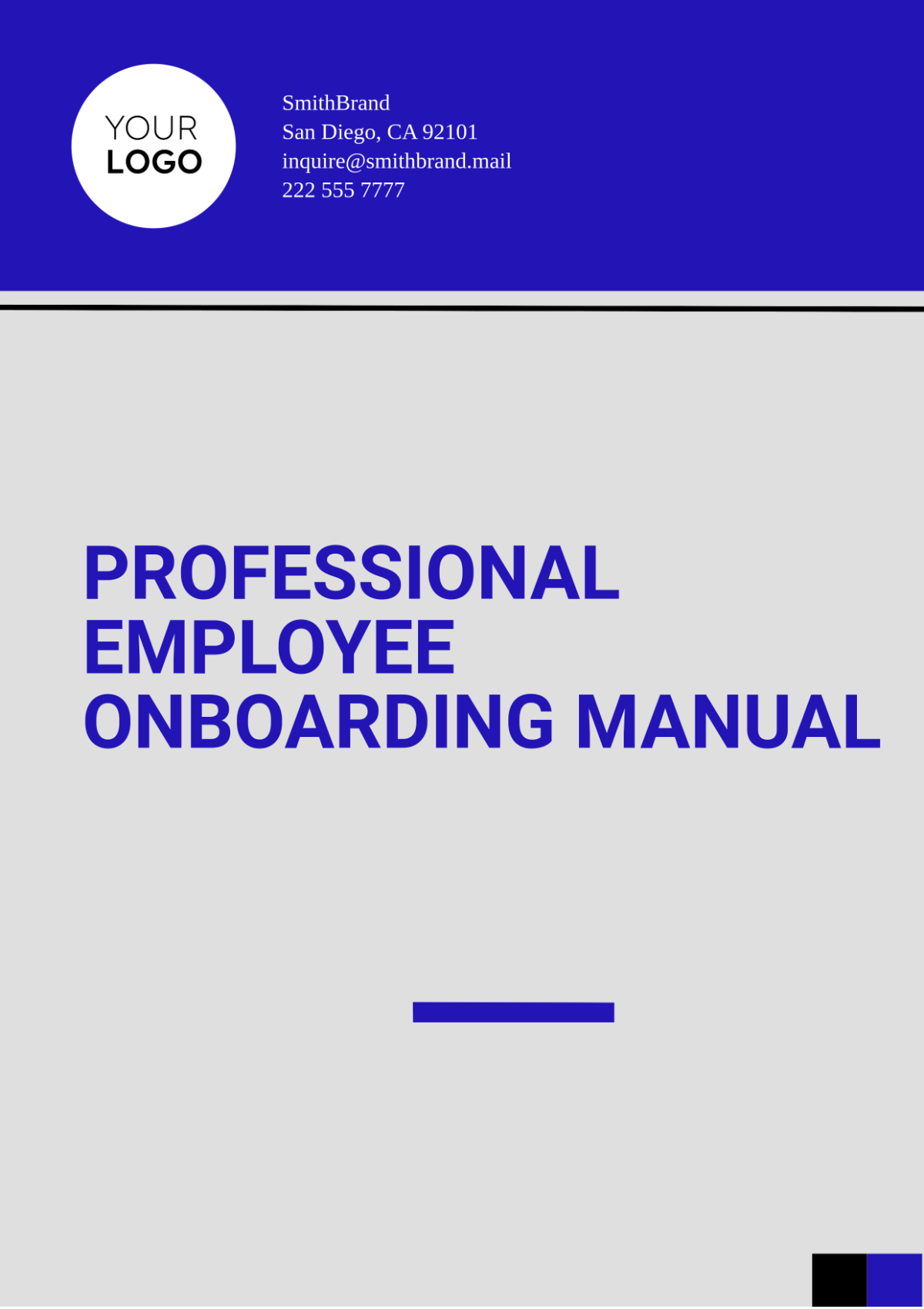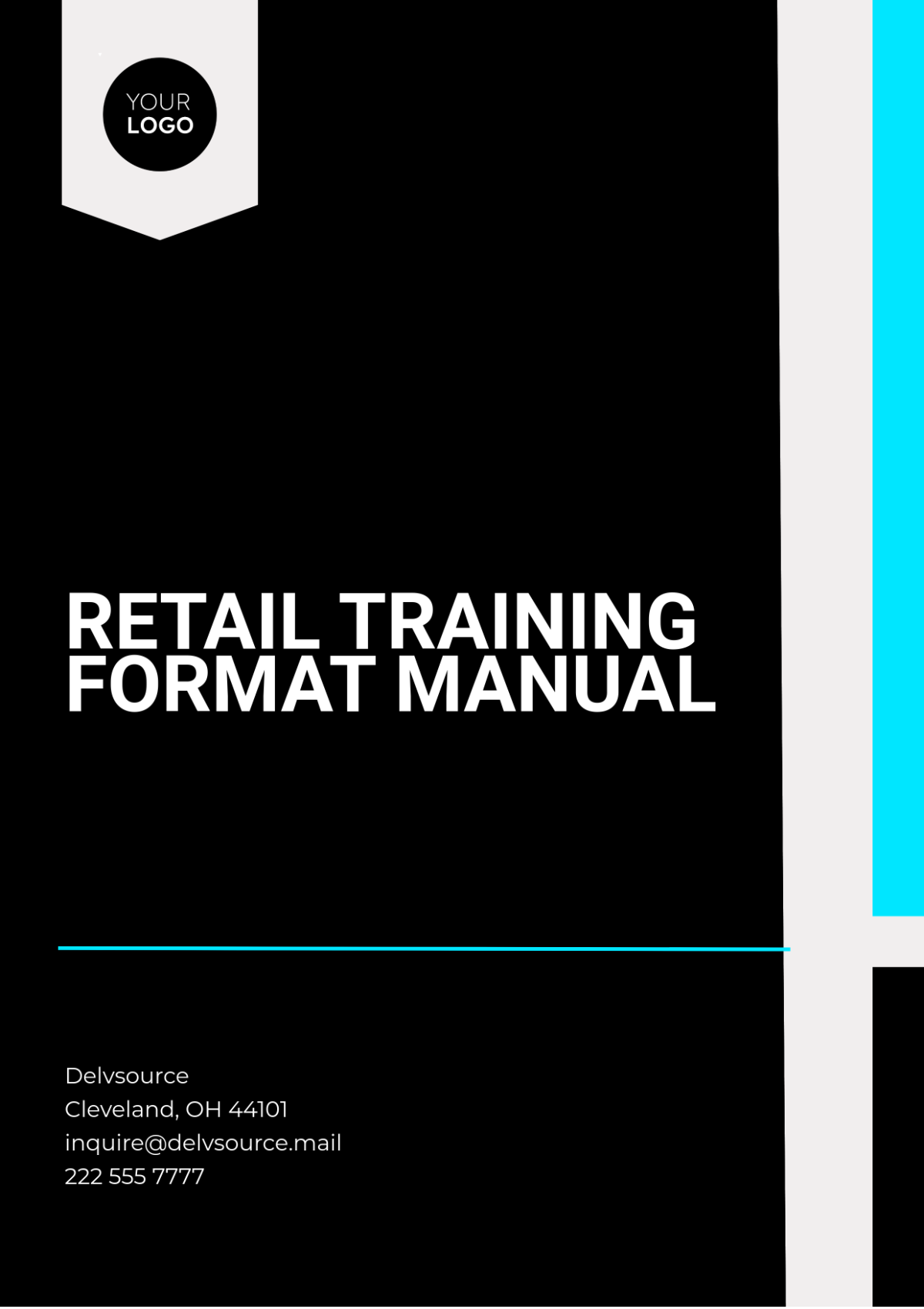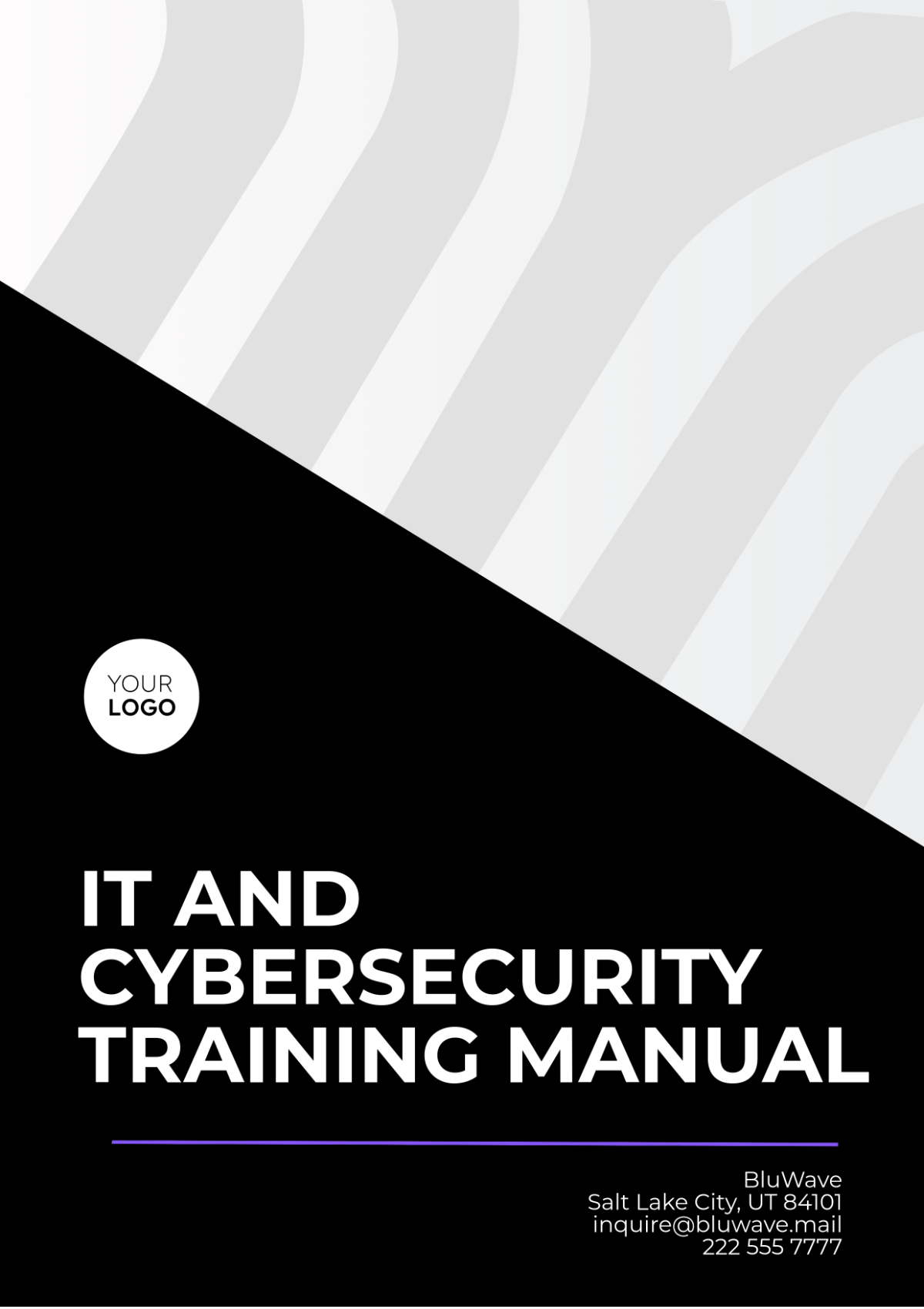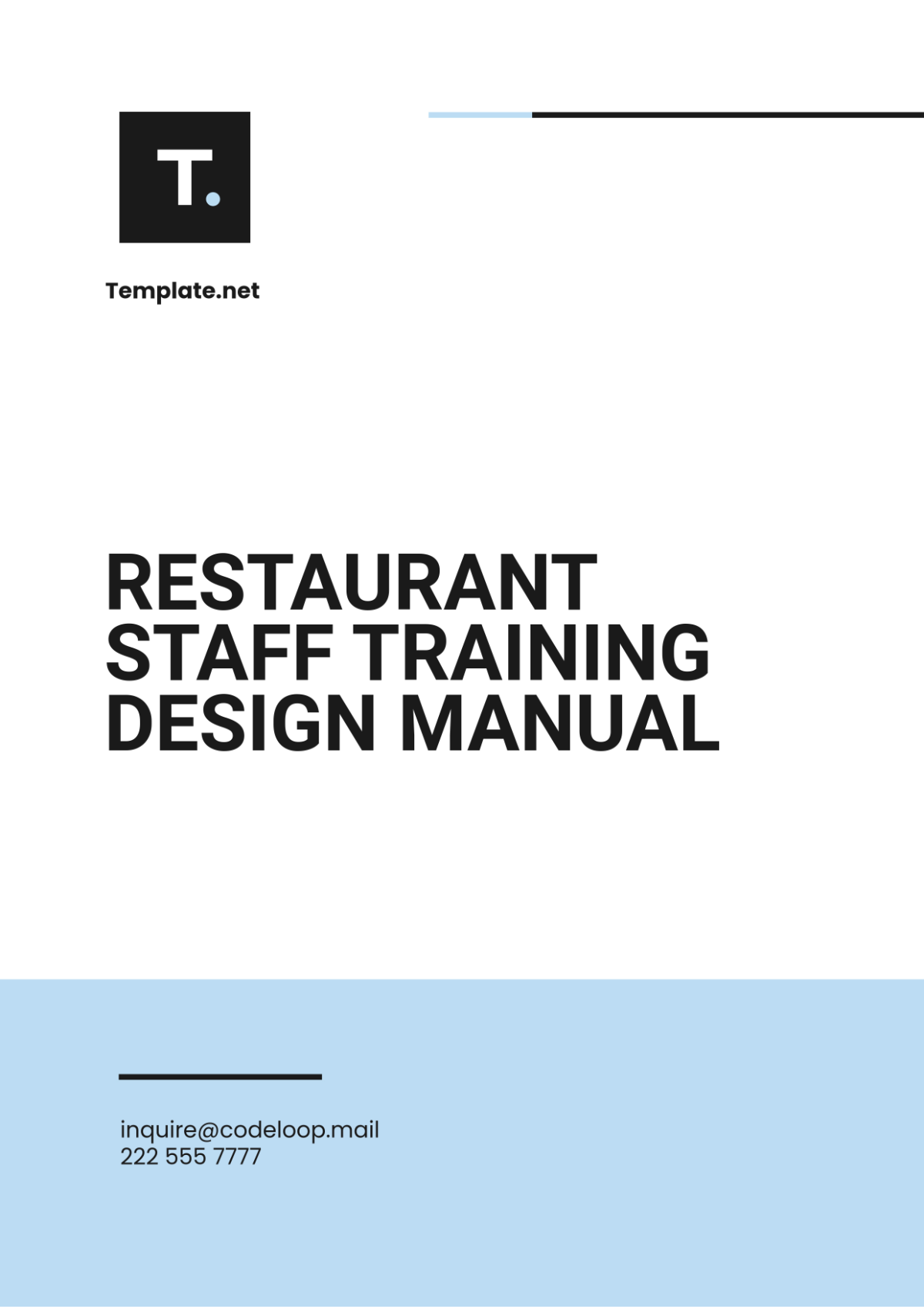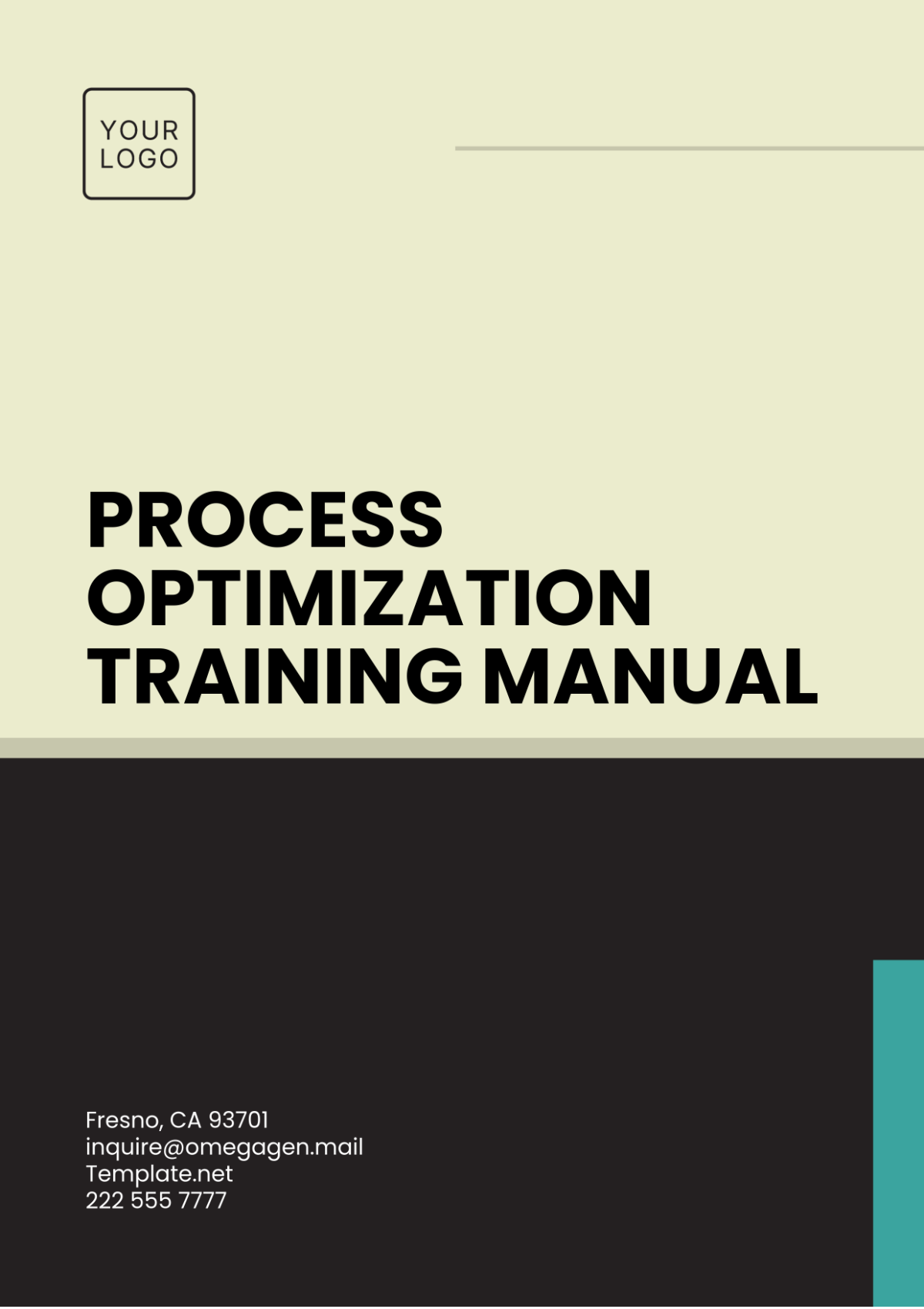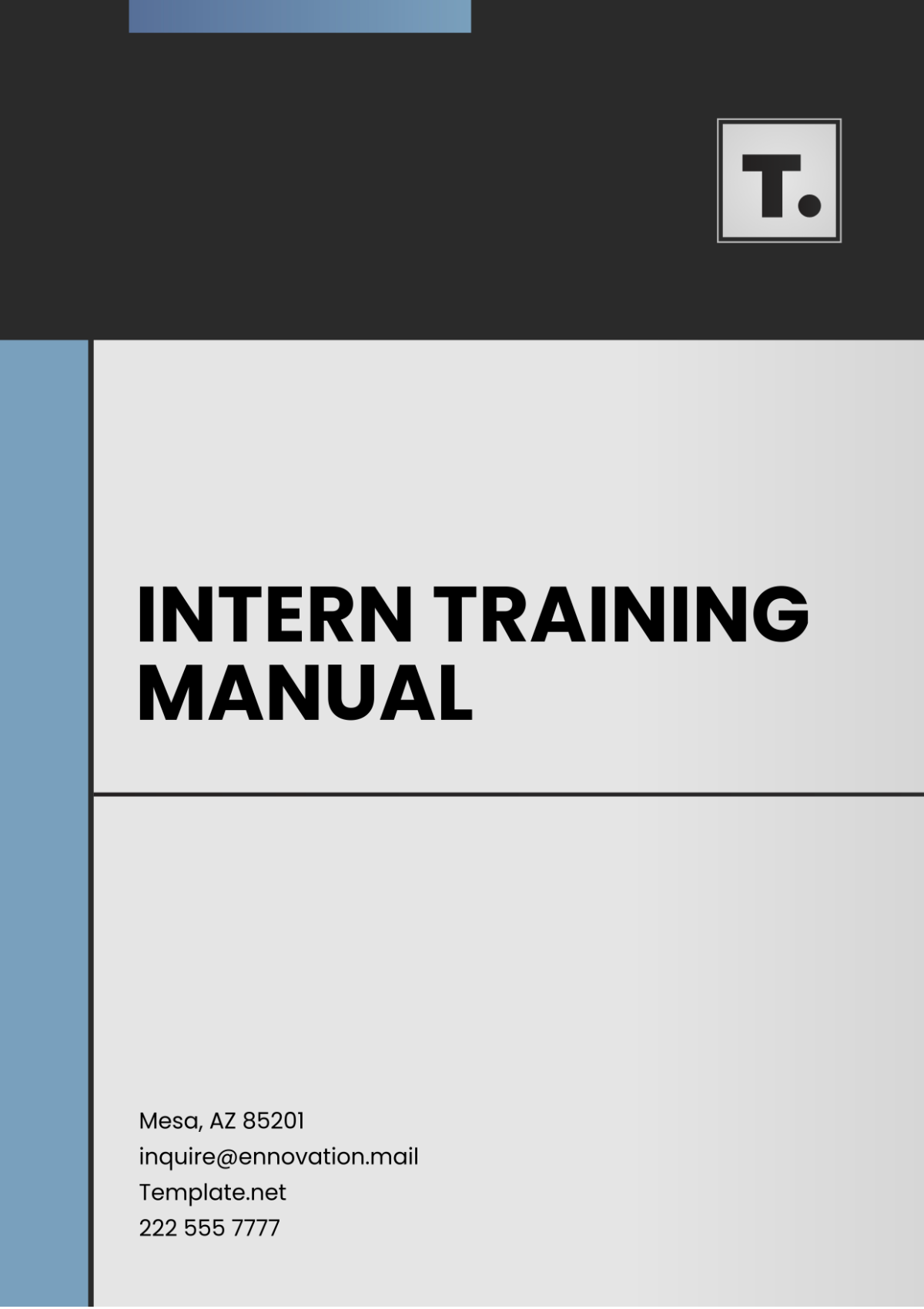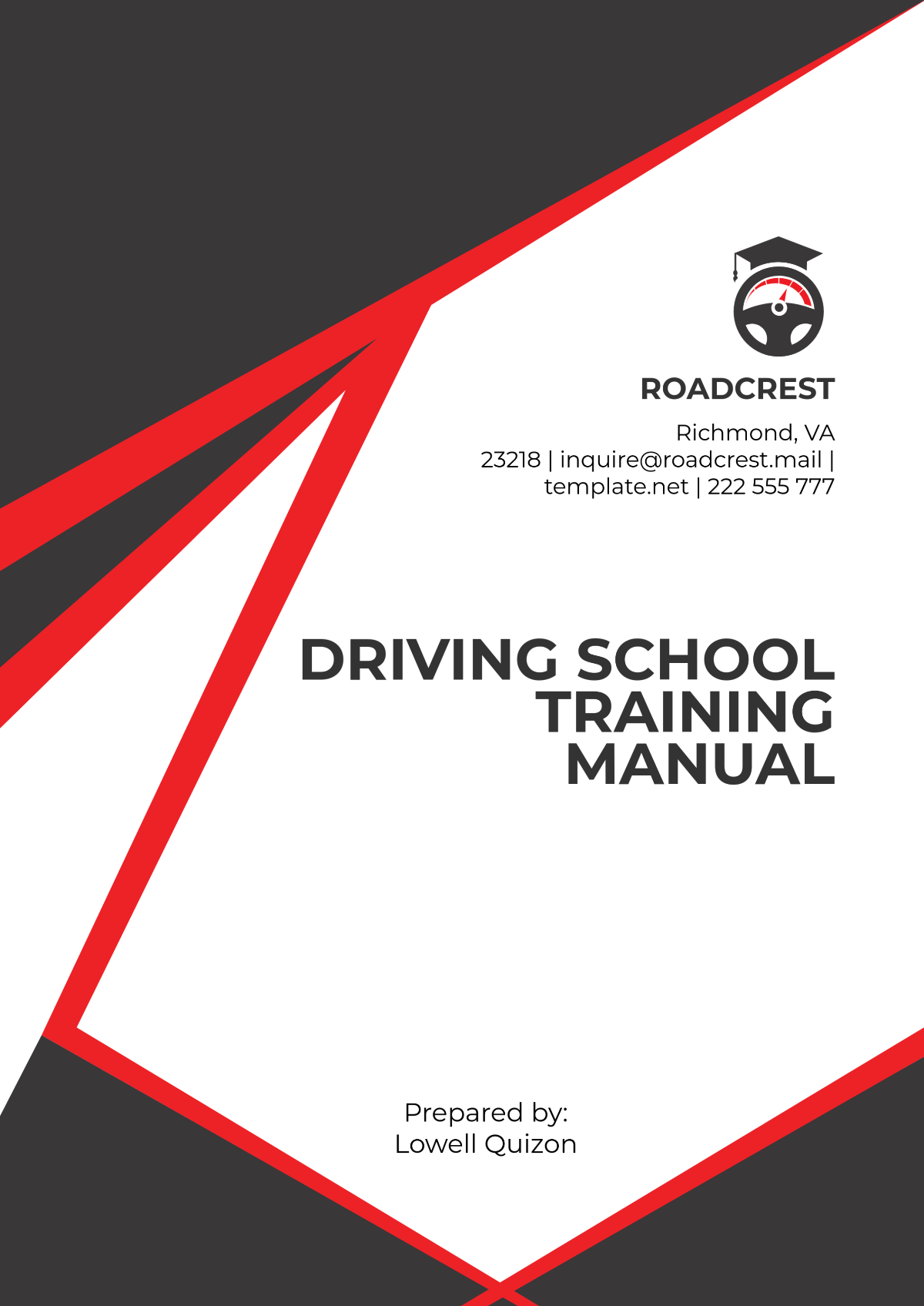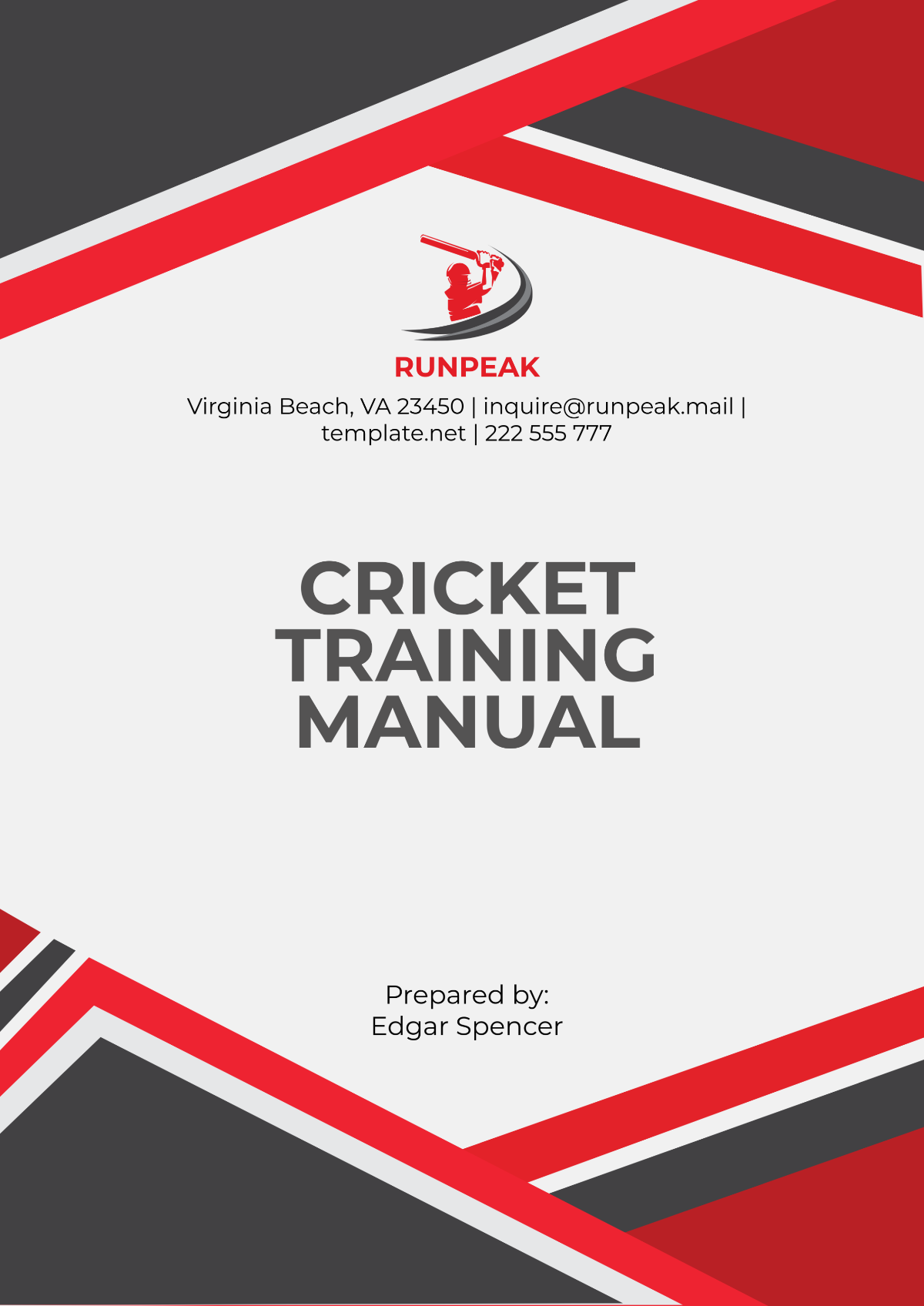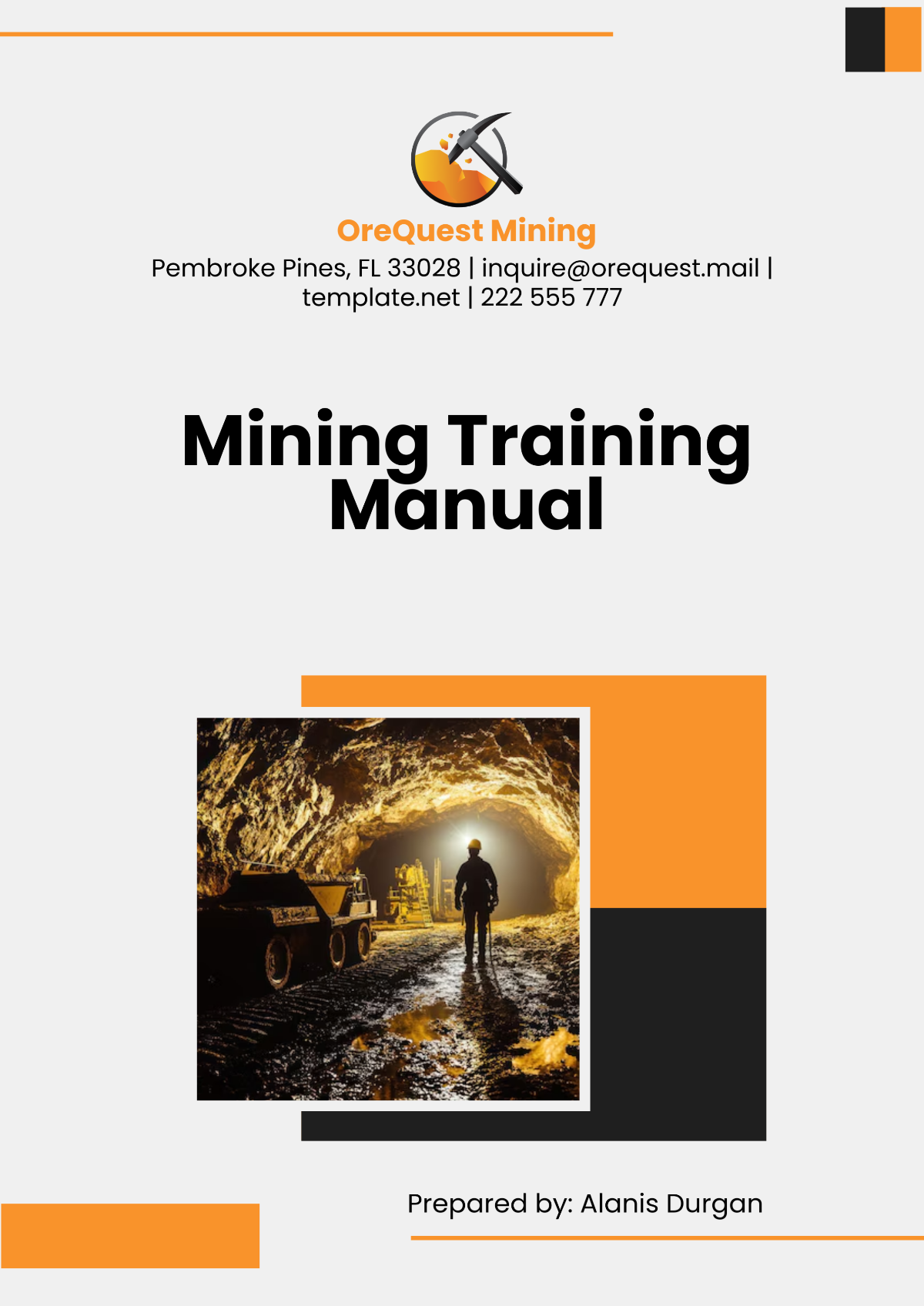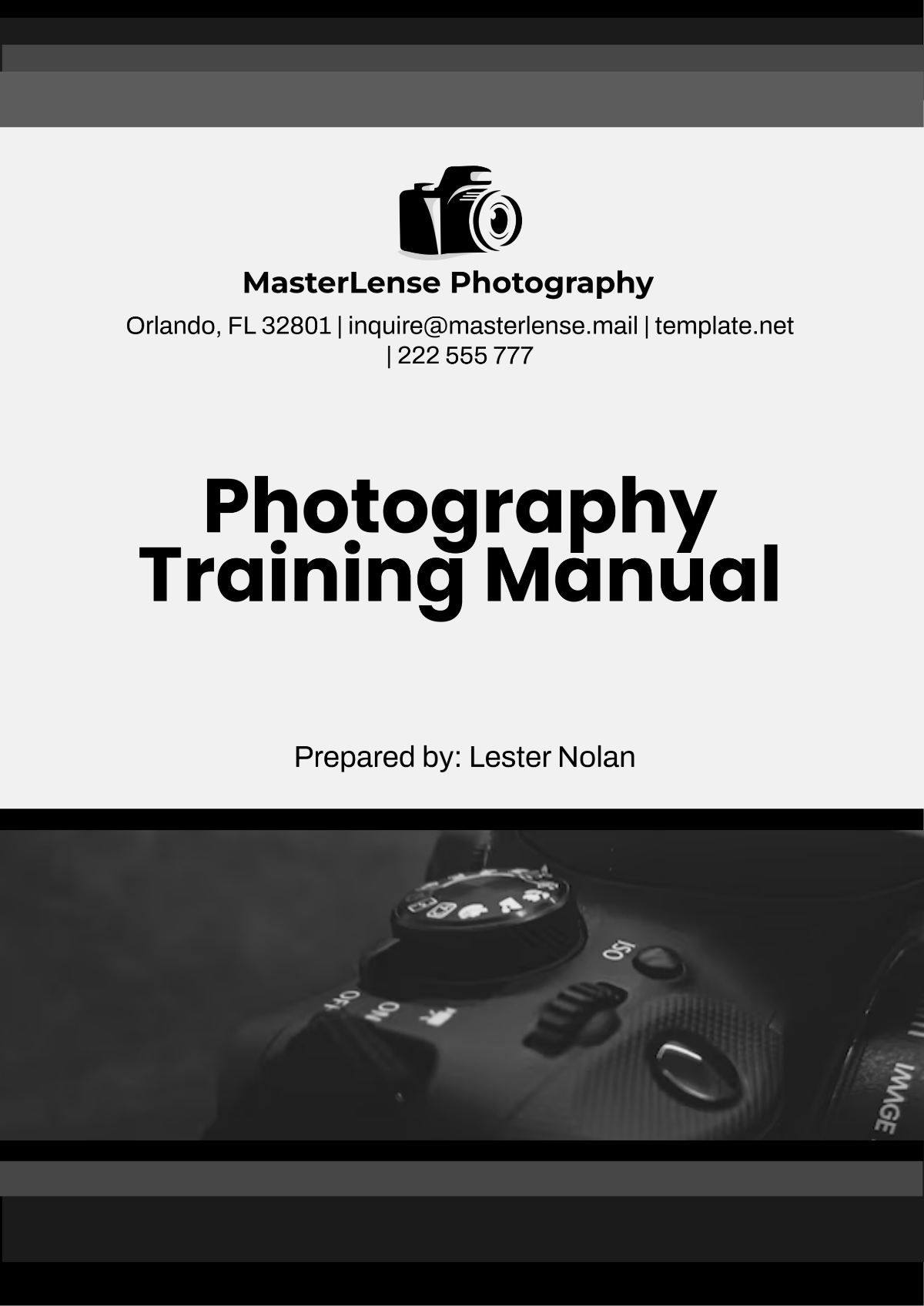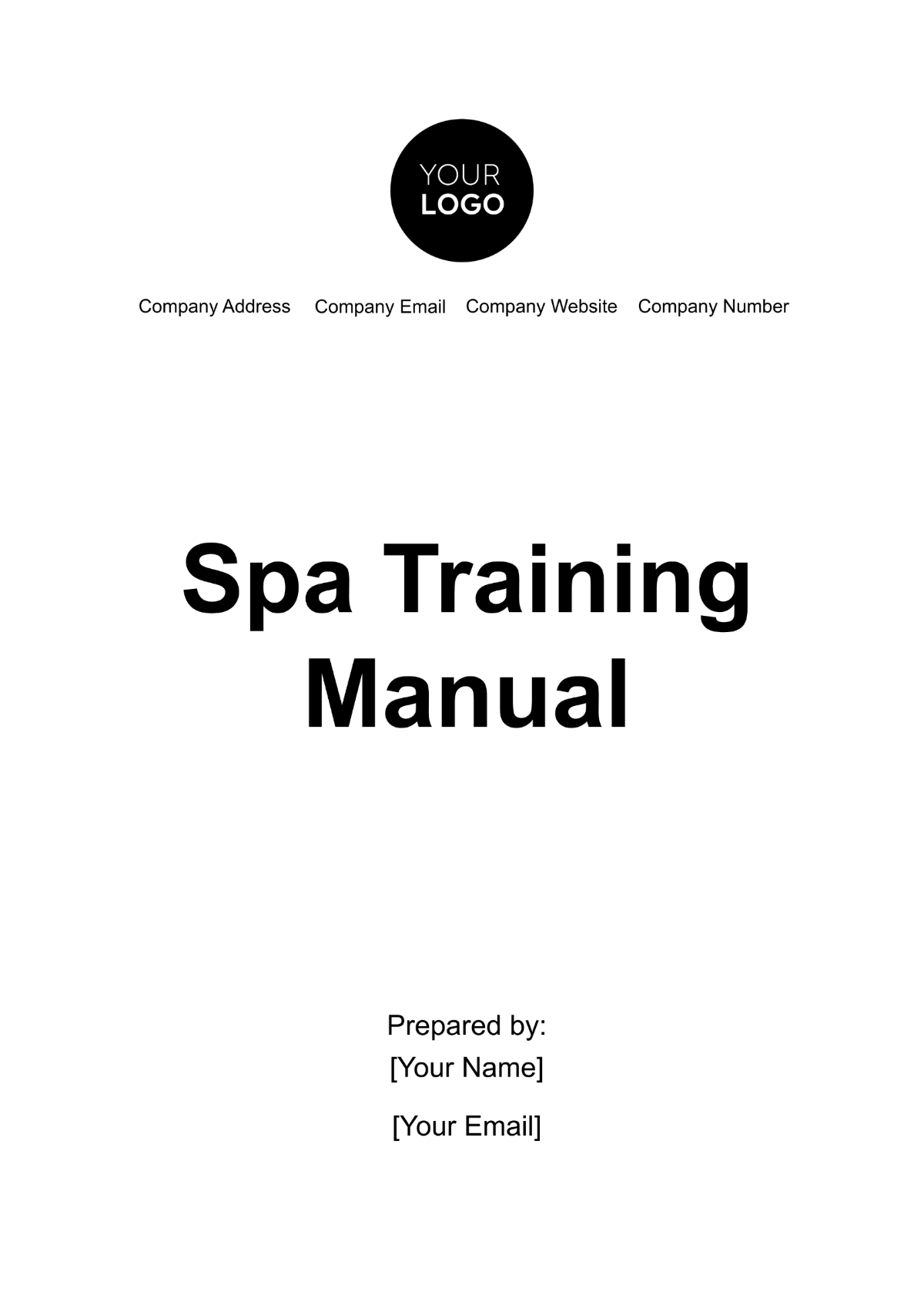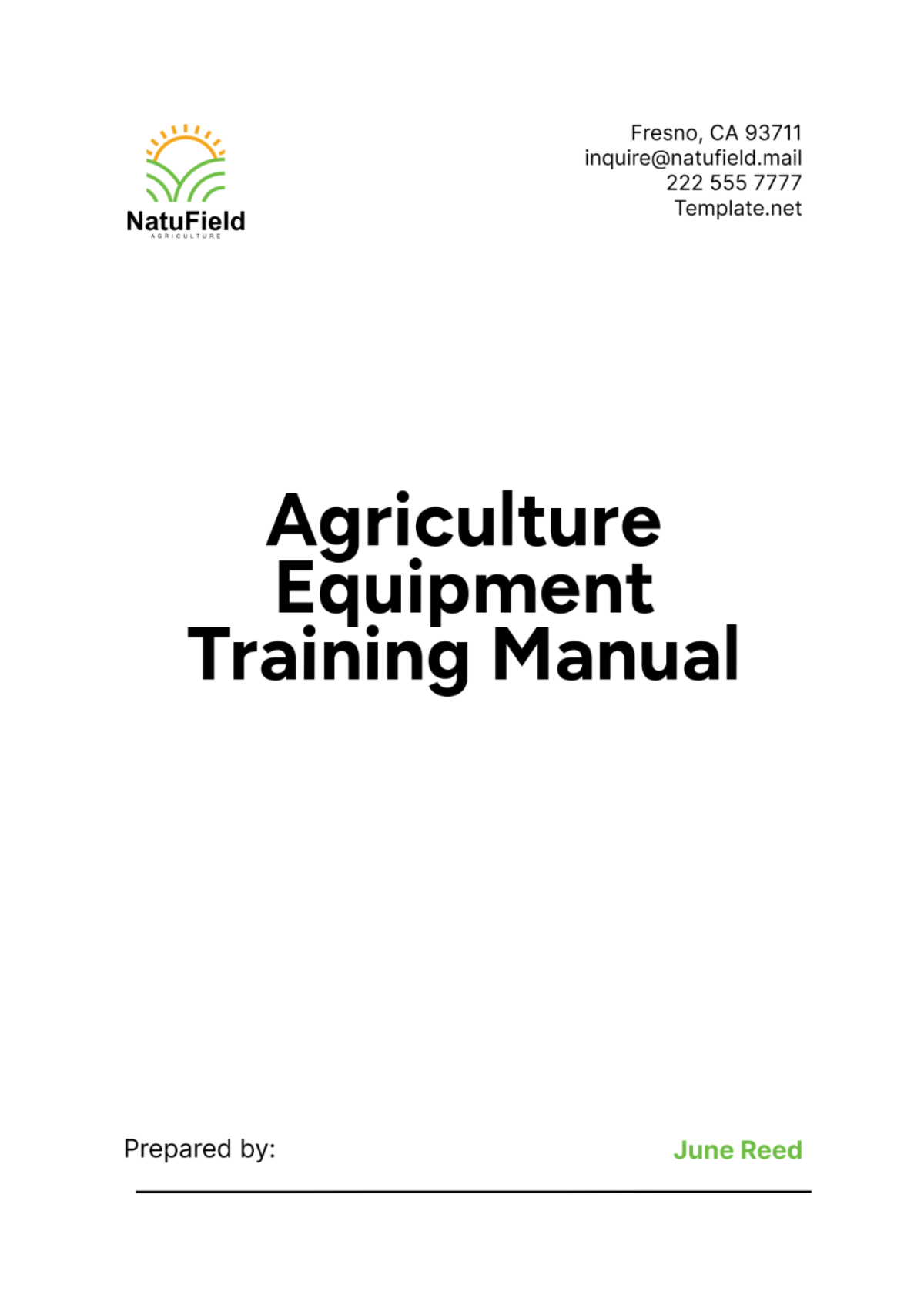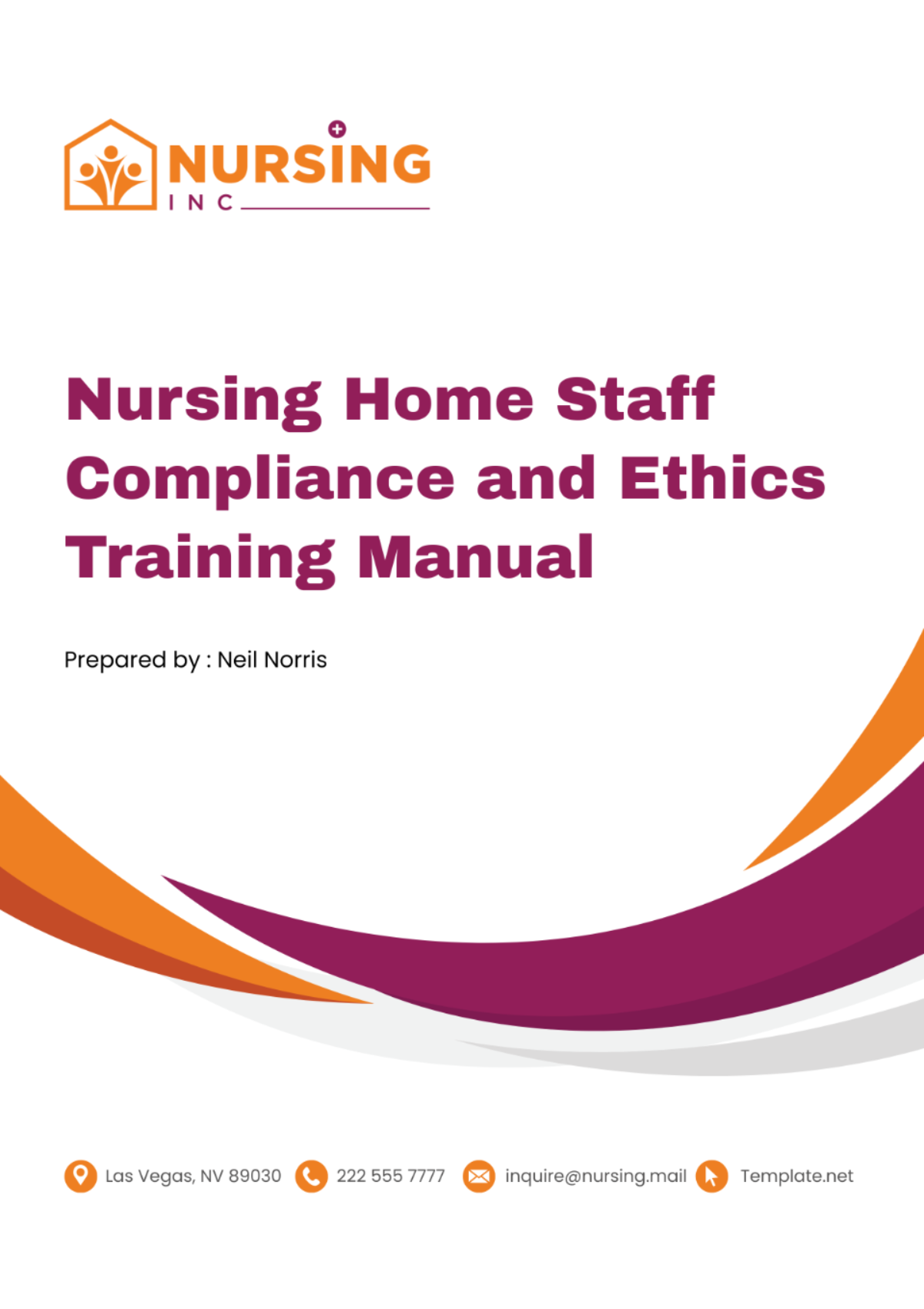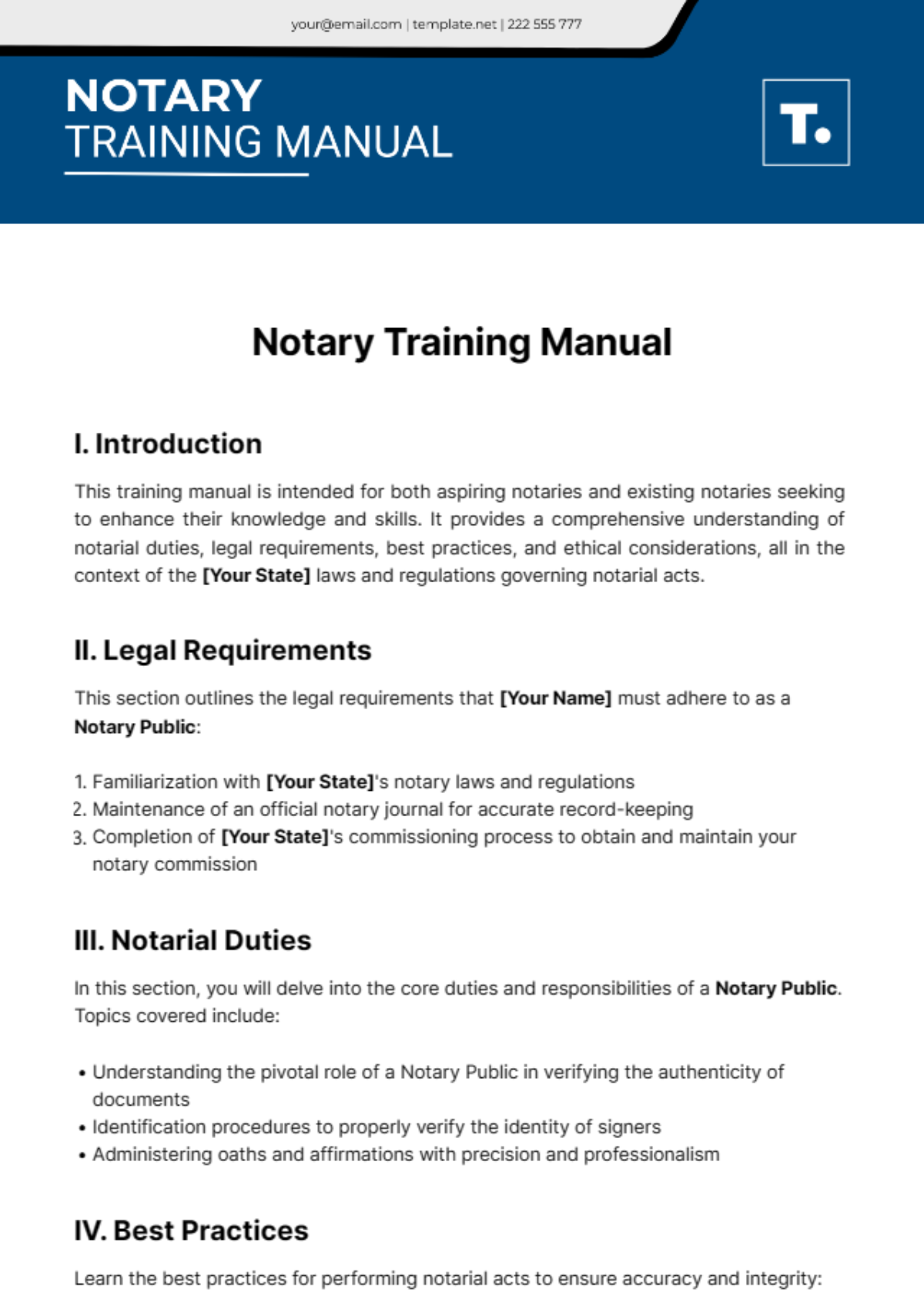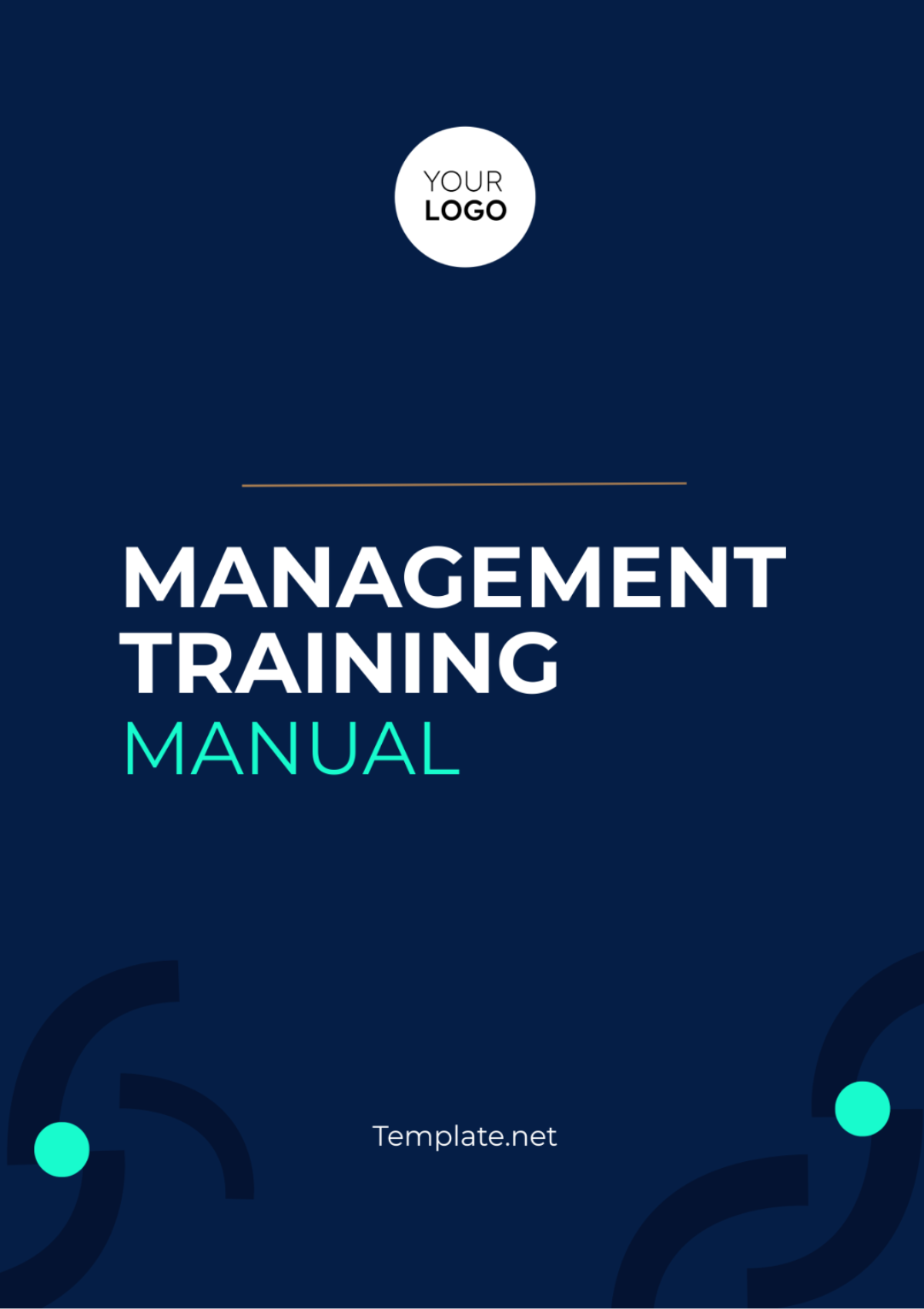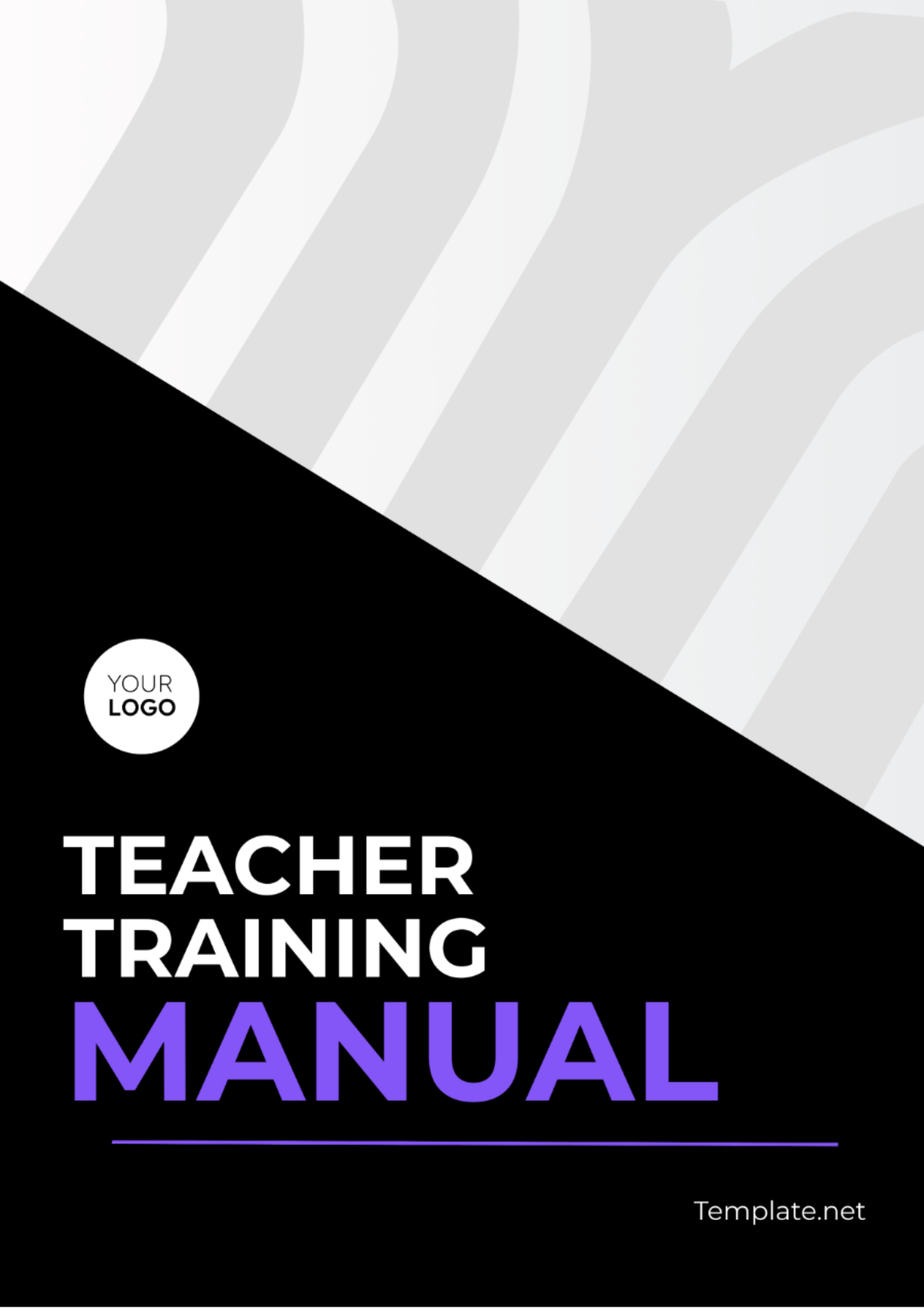Continuous Sales Training Manual
Introduction
Sales teams are the backbone of any retail business. They are responsible for driving revenue, building relationships with customers, and ensuring the success of the organization. To thrive in today's competitive retail landscape, continuous sales training is not just an option; it's a necessity.
[Your Company Name] understands the importance of nurturing a skilled and dynamic sales force. This Sales Manual serves as a comprehensive guide for continuous sales training, providing the tools and insights necessary for [Your Company Name]'s sales team to excel in their roles.
Sales Training Fundamentals
Continuous training is the cornerstone of a successful sales team. It ensures that our sales professionals are always up to date with the latest industry trends, products, and sales techniques. Continuous training not only enhances their skills but also boosts their confidence, making them more effective in their roles.
Key Sales Training Principles
Relevance: Training should be directly applicable to the challenges and opportunities faced by our sales team.
Engagement: Engaging and interactive training methods, such as role-playing, case studies, and group discussions, enhance the learning experience.
Feedback: Constructive feedback from trainers and peers is vital for improvement.
Customization: Tailoring training programs to the individual needs of sales representatives.
Measurement: Regularly assessing the effectiveness of training programs and adjusting them as needed.
The Role of Sales Training
Sales training is an investment in our sales team's success. It empowers our sales professionals to achieve their goals, foster strong customer relationships, and drive revenue growth. At [Your Company Name], we view sales training as an ongoing process that adapts to changing market conditions and customer expectations.
Product Knowledge
At [Your Company Name], we believe that an in-depth understanding of our products stands at the heart of effective selling. We prioritize comprehensive product knowledge training to ensure our sales professionals are well-versed in the features, benefits, and unique value propositions of our offerings.
In-Depth Understanding of [Your Company Name]'s Products | For our sales team to effectively communicate the value of our products to customers, they must have a deep understanding of our product range. This includes knowledge of product specifications, features, benefits, and how they meet the needs of various customer segments. |
Effective Ways to Stay Updated on Product Changes | [Your Company Name] frequently introduces new products and updates to existing ones. Sales representatives must stay current on these changes through regular product briefings, internal communication channels, and training sessions. |
Articulating Product Features and Benefits | Sales professionals should be able to articulate how each product's features translate into real benefits for the customer. This involves understanding the customer's pain points and demonstrating how our products solve their problems. |
Sales Techniques
At [Your Company Name], we prioritize training our sales representatives in the art of building rapport, ensuring they possess the skills to make meaningful first impressions, engender trust, and create a foundation for long-lasting customer relationships.
Building Rapport with Customers
Building rapport is the foundation of successful sales. Sales representatives should be trained in establishing a connection with customers, creating a positive impression, and fostering trust.
Effective Questioning and Active Listening
Skillful questioning and active listening are essential to uncover customer needs. Sales representatives must be adept at asking open-ended questions and carefully listening to the responses to tailor their recommendations.
Handling Objections and Overcoming Challenges
Customers often have concerns or objections. Training should equip sales professionals with effective objection-handling techniques to address these issues and guide the sale forward.
Closing Sales and Gaining Commitment
Sales representatives should be trained in various closing techniques to secure the sale and gain the customer's commitment. This involves recognizing buying signals and knowing when and how to ask for the sale.
Customer-Centric Selling
A deep understanding of customer needs is fundamental to customer-centric selling. Our sales training programs are designed to provide sales professionals with comprehensive insights into customer demographics, preferences, and buying behaviors.
Understanding Customer Needs
Our sales team should be well-versed in identifying customer needs and preferences. This includes understanding the various customer segments and tailoring sales approaches accordingly.
Providing Personalized Solutions
Customer-centric selling means offering personalized solutions that cater to the specific needs of each customer. Training should emphasize the importance of customization.
Managing Customer Relationships
Maintaining strong, ongoing customer relationships is essential. Training should cover relationship-building techniques, follow-up strategies, and post-sale support.
Handling Customer Feedback
Sales representatives should be trained to collect and handle customer feedback effectively. This feedback can be invaluable for product and service improvements.
Sales Technology and Tools
[Your Company Name] is committed to equipping our sales team with advanced sales technologies that streamline processes, enable precise targeting, and facilitate seamless communication. This ensures our team stays ahead of the curve, harnessing the power of technology to drive sales success.
Utilizing CRM Systems | Leveraging Sales Analytics |
Our sales team should be proficient in using Customer Relationship Management (CRM) systems to manage customer data, track interactions, and streamline sales processes. | Sales analytics provide insights into performance and customer behavior. Training should enable sales representatives to use analytics to make informed decisions. |
Staying Updated on Retail Trends and Tools | Social Selling Strategies |
The retail landscape is constantly evolving. Training should keep our sales team informed about emerging trends, tools, and technologies that can enhance their sales efforts. | In today's digital age, social media is a valuable sales tool. Training should cover social selling strategies, including building a professional online presence and engaging with customers through social channels. |
Sales Team Collaboration
Communication is the cornerstone of any successful sales team. This section delves into strategies for enhancing interaction among team members to ensure seamless information flow, sharing of best practices, and cultivation of a supportive work environment.
Effective Communication within the Sales Team
Smooth communication among team members is vital. Training should promote effective internal communication to share information, best practices, and insights.
Sharing Best Practices
Experienced sales representatives should share their best practices and insights with newer team members. This collaborative environment fosters learning and growth.
Developing a Communication Protocol:
Establishing clear communication channels and protocols ensures that information is shared efficiently and reaches the intended recipients promptly. Training should include the use of collaborative tools and platforms that support real-time information exchange.
Regular Team Meetings:
Scheduled meetings should be held to discuss progress, challenges, and strategies. These gatherings provide an opportunity for team members to align on objectives, share insights, and offer mutual support.
Collaborating with Other Departments
Sales often intersects with other departments such as marketing, customer support, and product development. Training should promote cross-functional collaboration and communication.
Professional Development
Continuous personal and professional development is key to maintaining a competitive edge in the sales industry. This section provides guidance on setting personal goals, seeking mentorship, and embracing continuous learning opportunities.
Setting Personal Sales Goals
Sales professionals should set personal sales goals and work towards achieving them. Training can provide guidance on setting realistic and challenging goals.
Seeking Mentorship and Guidance
Mentorship programs can be valuable for the professional development of sales representatives. Training should encourage seeking guidance and mentorship within and outside the organization.
Continuous Learning and Skill Enhancement
Sales professionals should adopt a mindset of continuous learning. Training should introduce them to various learning resources and opportunities for skill enhancement.
Sales Training Resources
Access to a variety of training resources is essential for the development of sales skills and knowledge. This section lists recommended materials and platforms that sales professionals can utilize for their growth.
Recommended Books, Courses, and Seminars
To encourage continuous learning, [Your Company Name] can provide a list of recommended books, online courses, and industry seminars that can further develop sales skills and knowledge.
Online Learning Platforms
Online learning platforms offer a convenient way for sales professionals to access training modules, webinars, and educational materials. [Your Company Name] can recommend trusted online resources.
[Your Company Name]'s In-House Training Materials
The company should maintain a repository of in-house training materials, including presentations, videos, and guides, to ensure consistency in training content.
Measuring and Evaluating Sales Performance
Systematic measurement and evaluation of sales performance are crucial for identifying areas of improvement and recognizing achievements. This section outlines the tools and approaches for assessing individual and team performance effectively.
Key Performance Indicators (KPIs)
[Your Company Name]'s sales team should be familiar with the KPIs that measure their performance, such as sales quotas, conversion rates, and customer satisfaction scores.
Sales Performance Assessment
Regular assessments, including quizzes, role-plays, and evaluations, can help measure individual and team performance. The results of these assessments can guide further training.
Individual and Team Assessments
Individual assessments can help sales representatives identify areas for improvement. Team assessments can highlight collective strengths and weaknesses, guiding training initiatives.
Sales Training Calendar
A training calendar should outline the training programs, workshops, webinars, and events scheduled for each month, ensuring that sales representatives can plan their participation.
Date | Activities |
[Month Day, Year] | Interactive workshop on setting SMART (Specific, Measurable, Achievable, Relevant, Time-bound) sales goals. |
Workshops, Webinars, and Events
[Your Company Name] is dedicated to offering a diverse array of workshops, webinars, and events designed to immerse our sales professionals in hands-on learning experiences and enable them to forge valuable connections with peers and leading figures in the industry. These sessions aim to foster an environment where innovative sales strategies can be explored and mastered in real-time, encouraging not just the acquisition of new skills but also the exchange of insights and best practices among participants.
Certifications and Qualifications
At [Your Company Name], we recognize the importance of continuous professional development and the role of recognized certifications and qualifications in advancing a sales professional's career. Our support for professional development encompasses providing access to certification programs, financial assistance for qualifying courses, and dedicated time off for exam preparation and participation.
Conclusion
Continuous sales training is a fundamental part of [Your Company Name]'s commitment to success. This Sales Manual serves as a comprehensive resource to guide our sales team's ongoing development. By investing in continuous training, we empower our sales professionals to excel in their roles, foster meaningful customer relationships, and drive the growth and prosperity of [Your Company Name].
